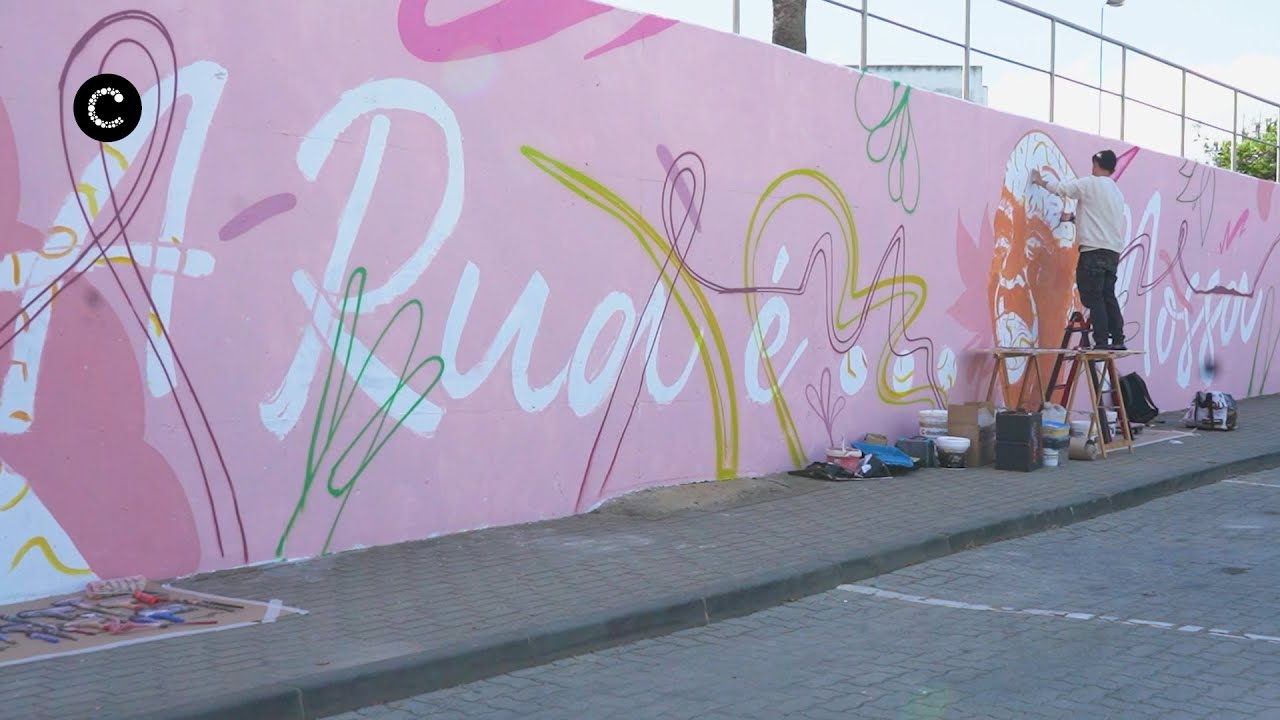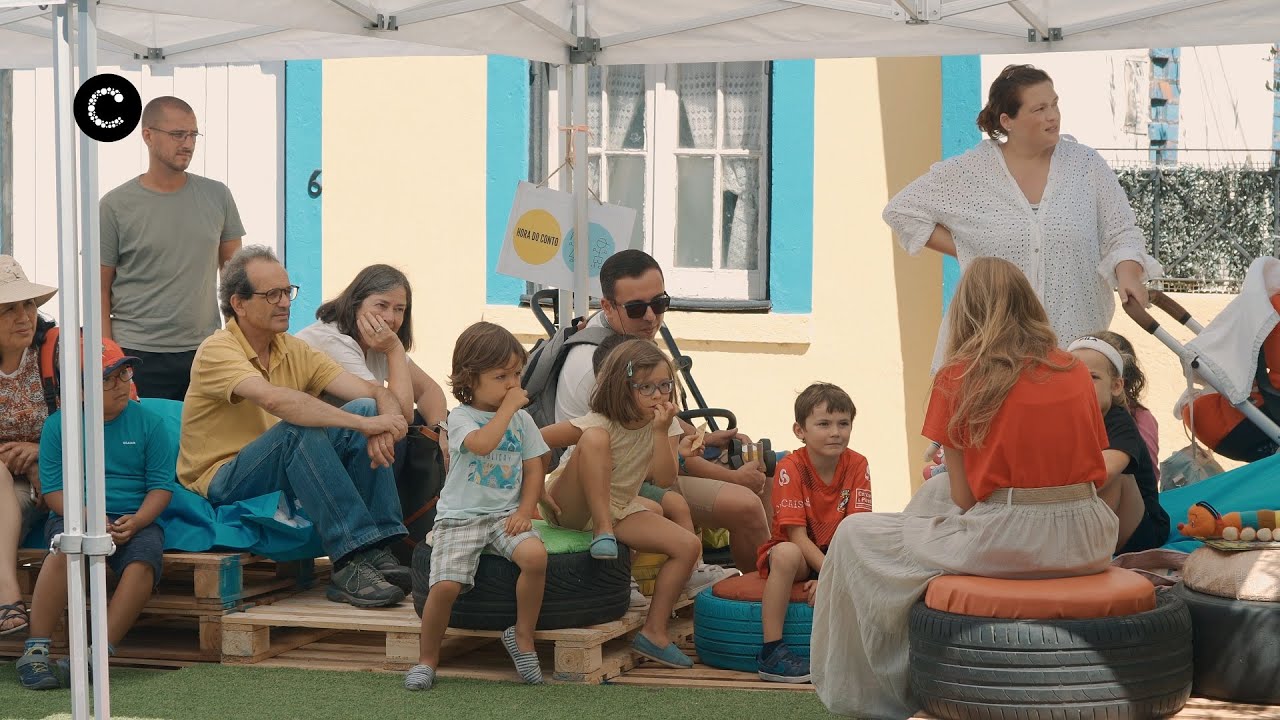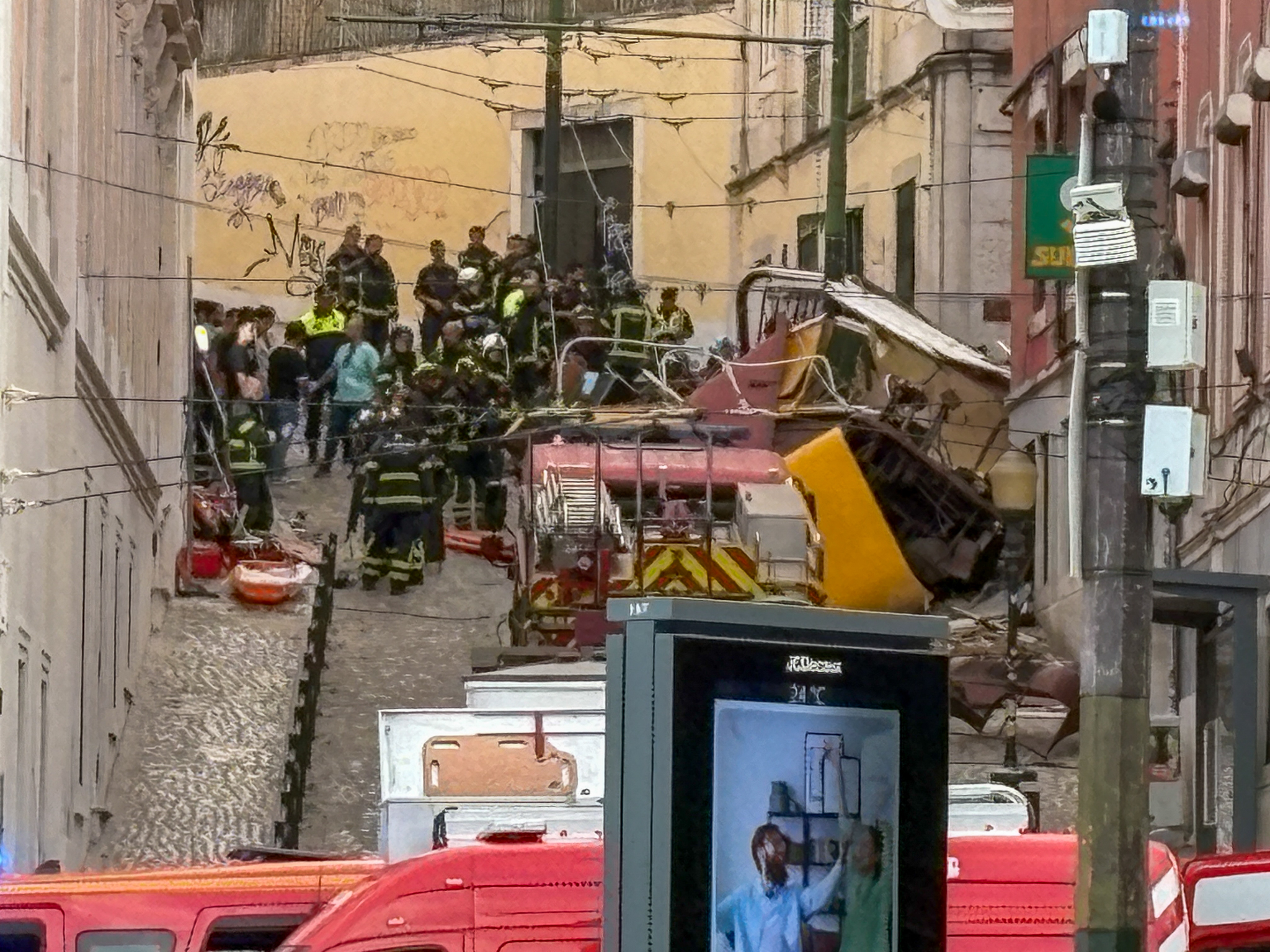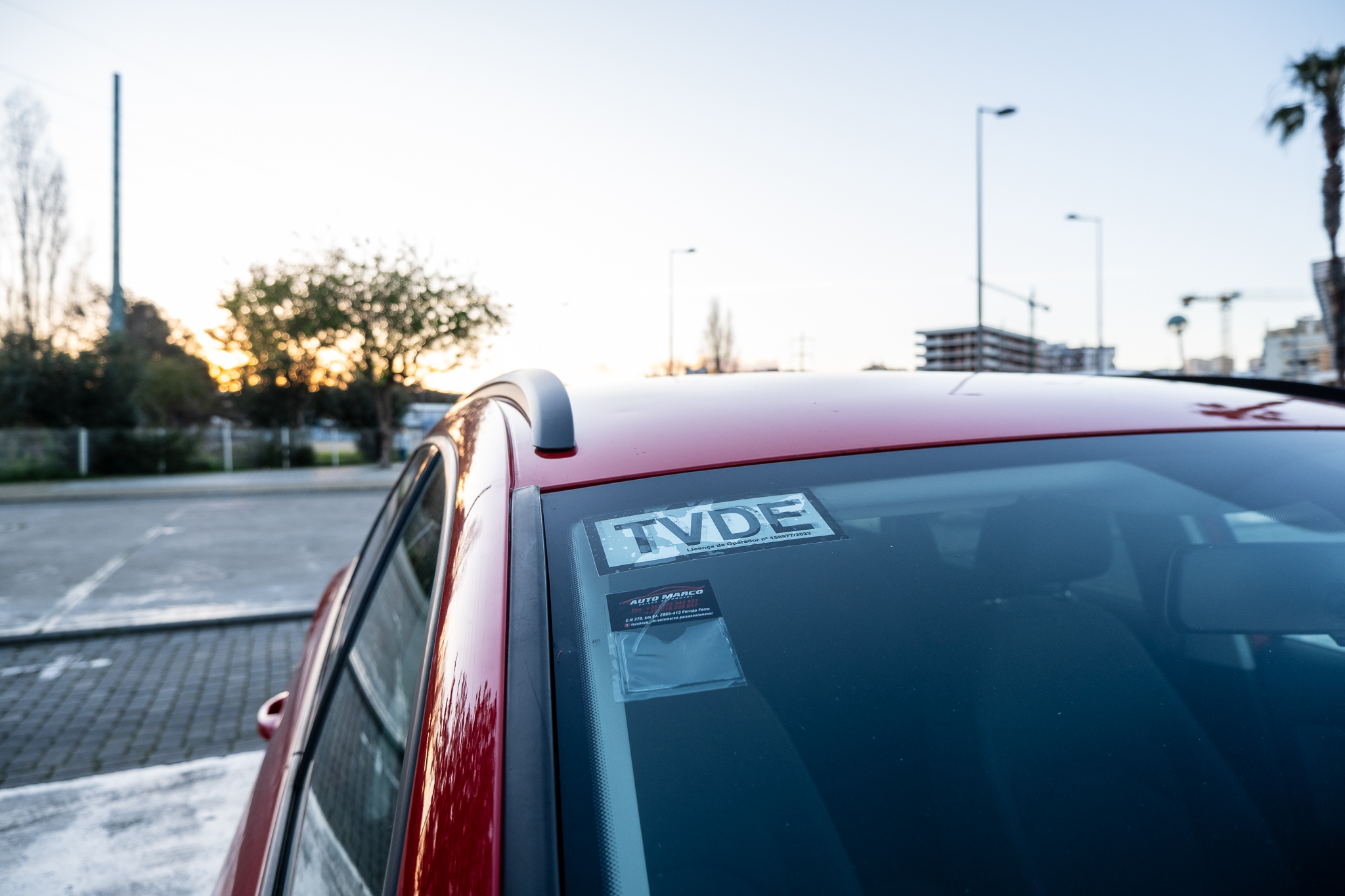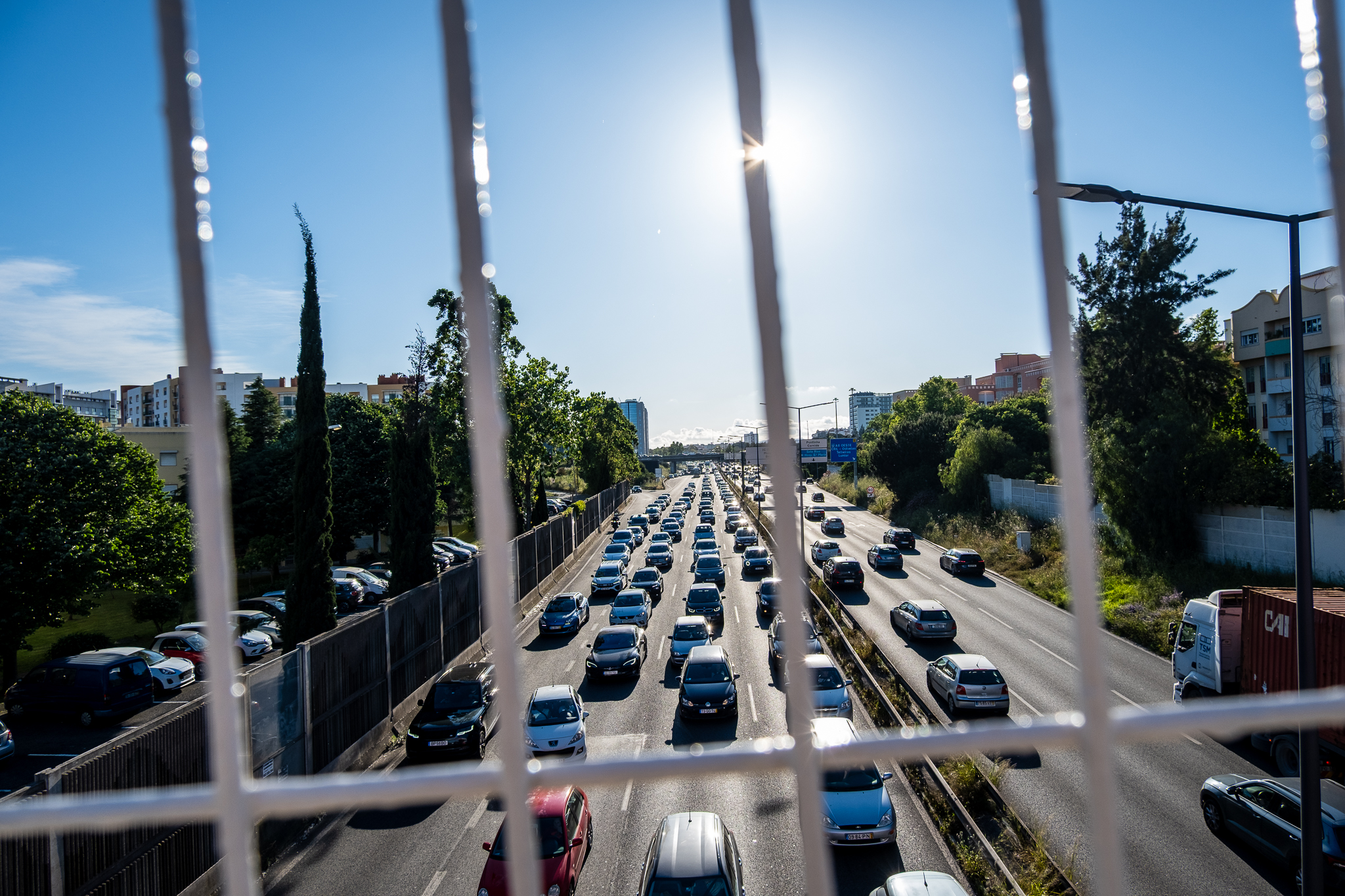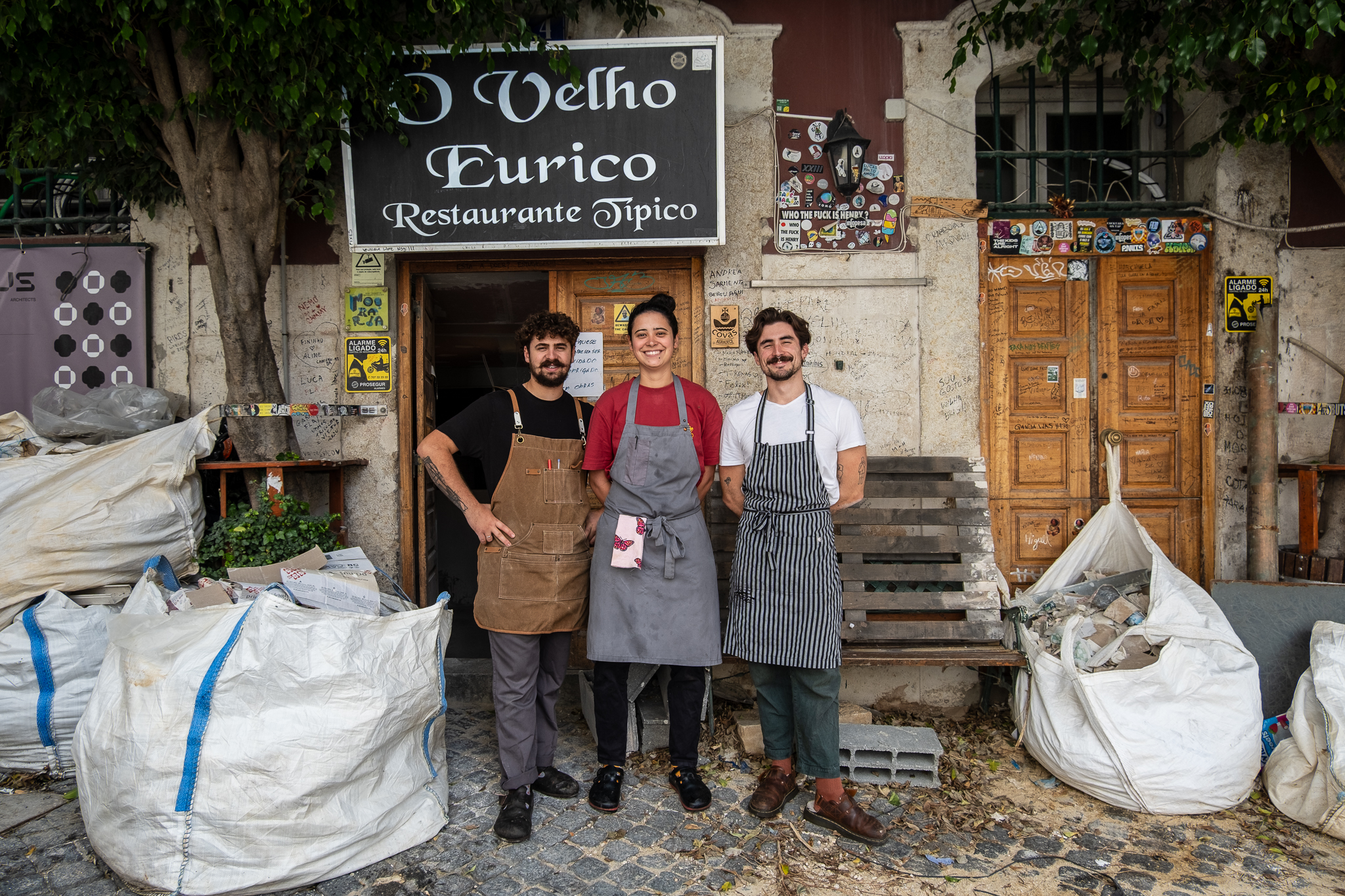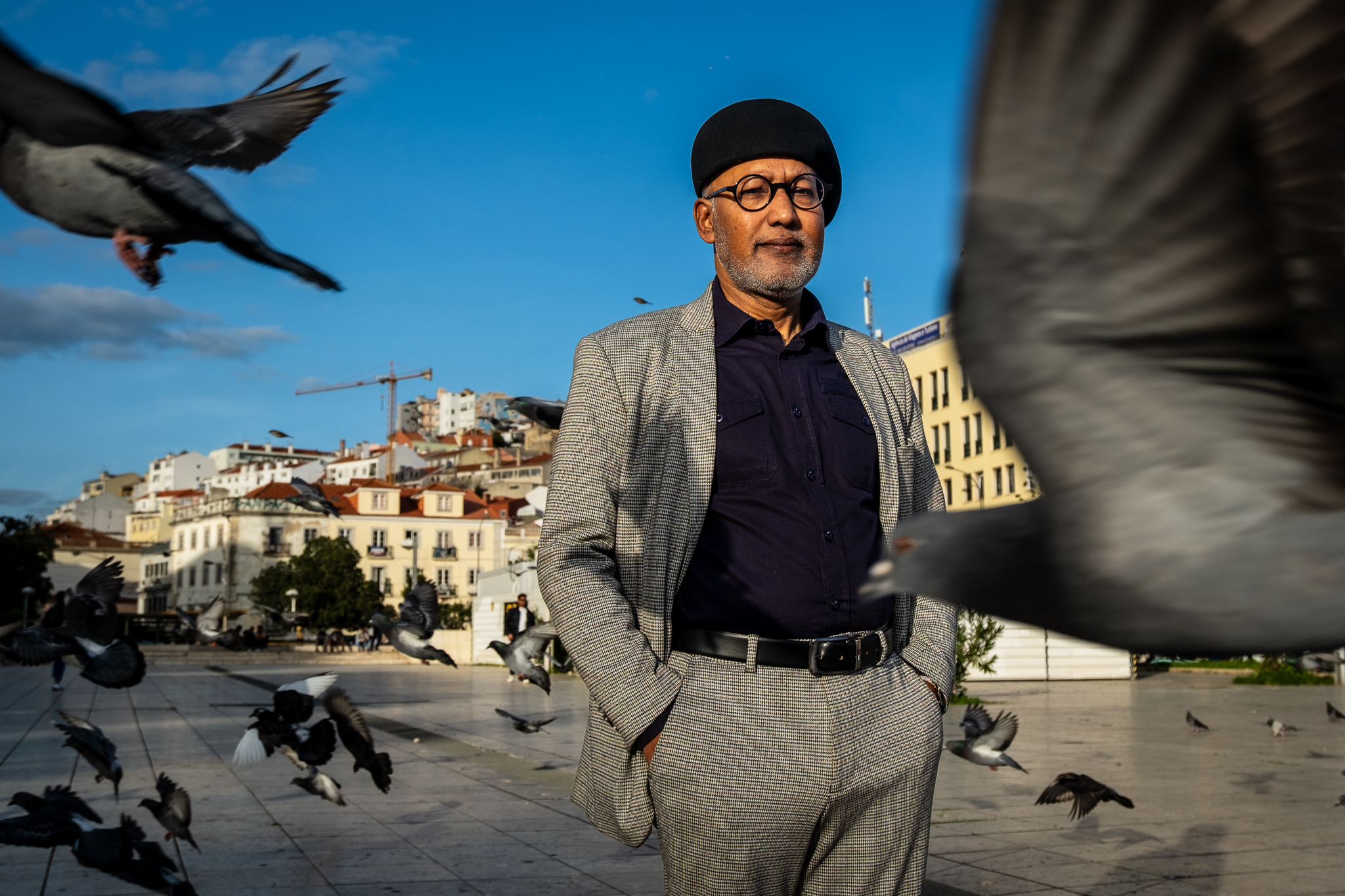In each parish in the municipality of Cascais, there will be a street temporarily closed to cars and open to children. This Saturday morning, it was Parede's turn. At the end of the year, there will be a seminar and a good practice guide with the results of this initiative.

This Saturday morning, June 17, children played in the street again in the parish of Parede, in Cascais. A section of Rua José Relvas, one of the town's most central arteries, was closed to cars and opened to people and, in particular, children. Entire families responded to the invitation of the Cascais Chamber, and quickly appropriated the public space and the games and activities offered on a sunny morning.
The opening of this street in Parede to children this Saturday was not an isolated initiative. The Municipality of Cascais is promoting these temporary actions in all the parishes of the municipality between this month of June and October. The idea is to learn from the children themselves, to understand how they play in the street and what they would like the street to be; and, by the end of the year, to present the results in a seminar and through a guide of best practices.
For several hours, at the Parede, there was table soccer and a ping-pongThere were cars to play on a track drawn on the asphalt with chalk, marbles to race, boxes to pull as if they were cars, old cans that suddenly served as crutches, and other traditional games. There were also story readings, a mural being painted by the children on a street wall - the idea is that these temporary actions leave more permanent marks -, and a "play-library" where the little ones could use their imagination to build things with wood and other materials.
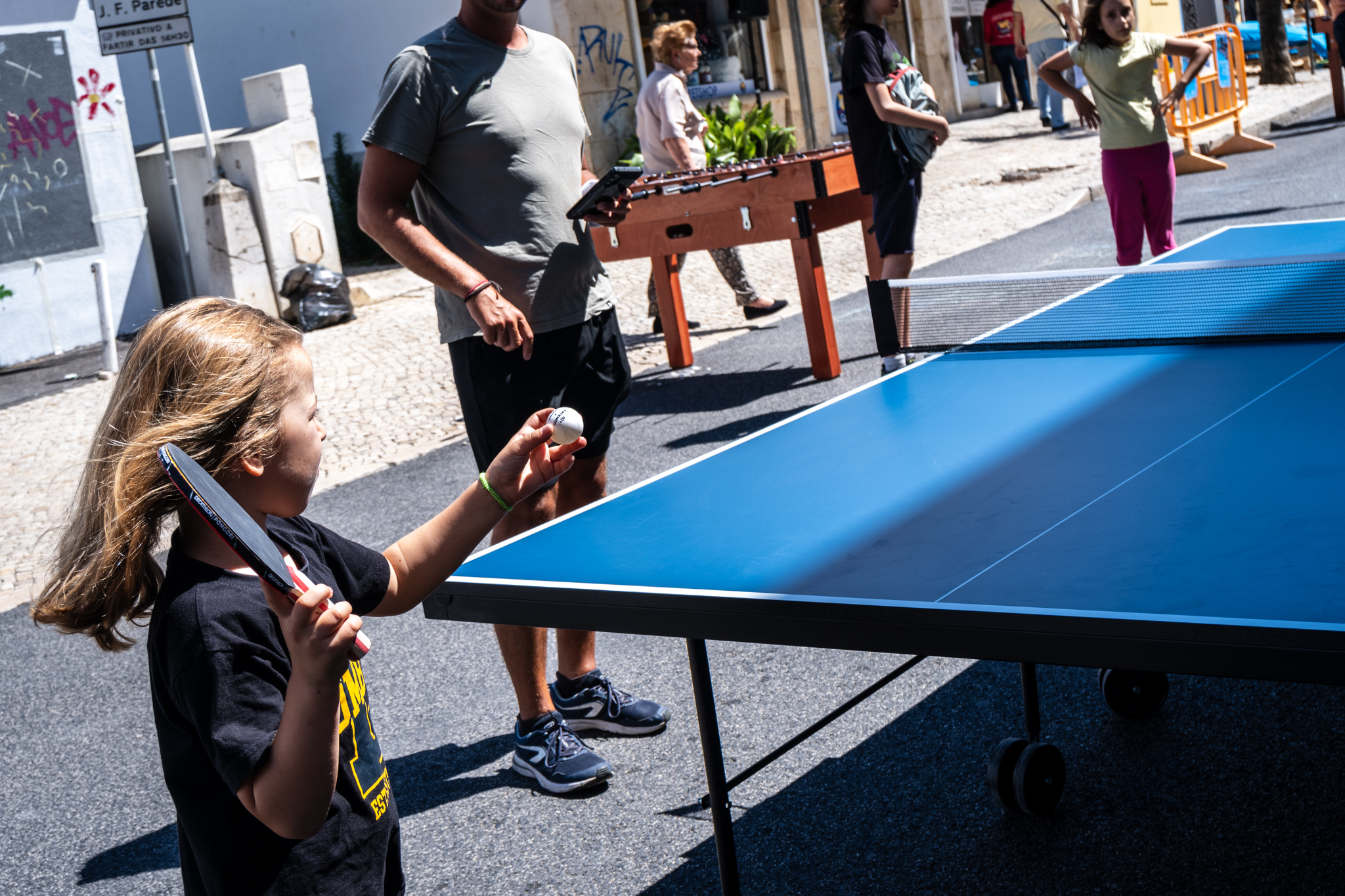
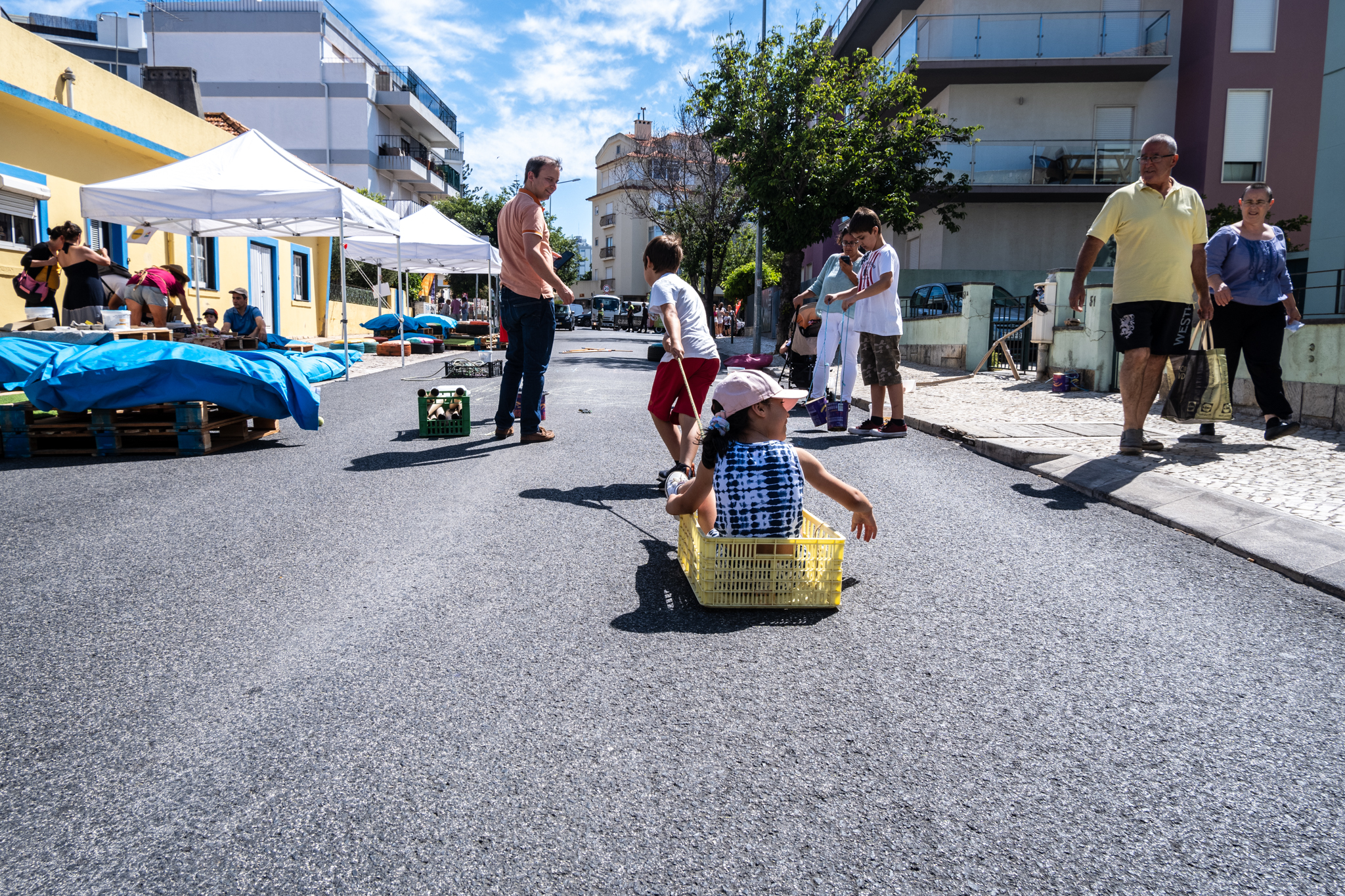
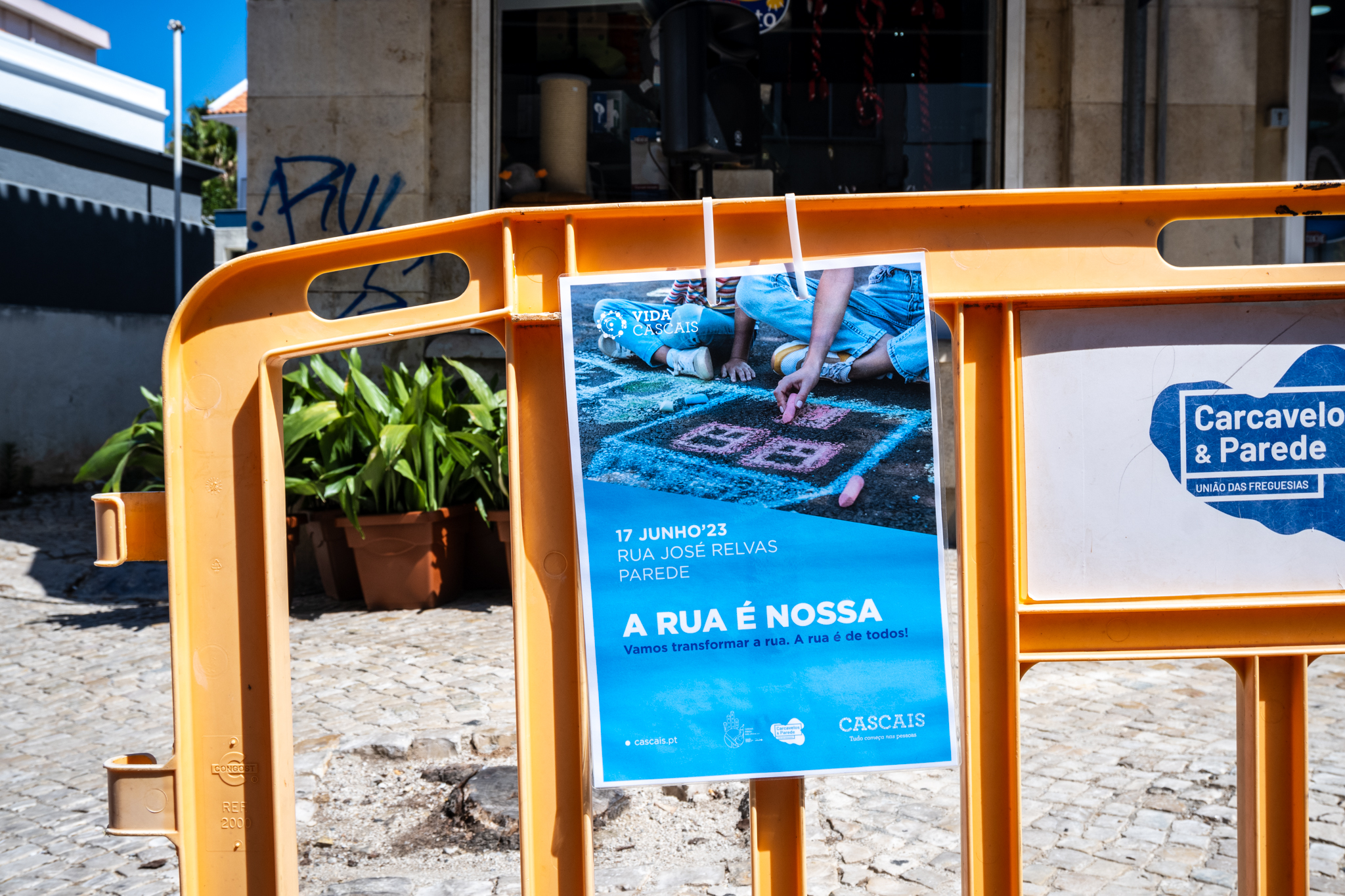

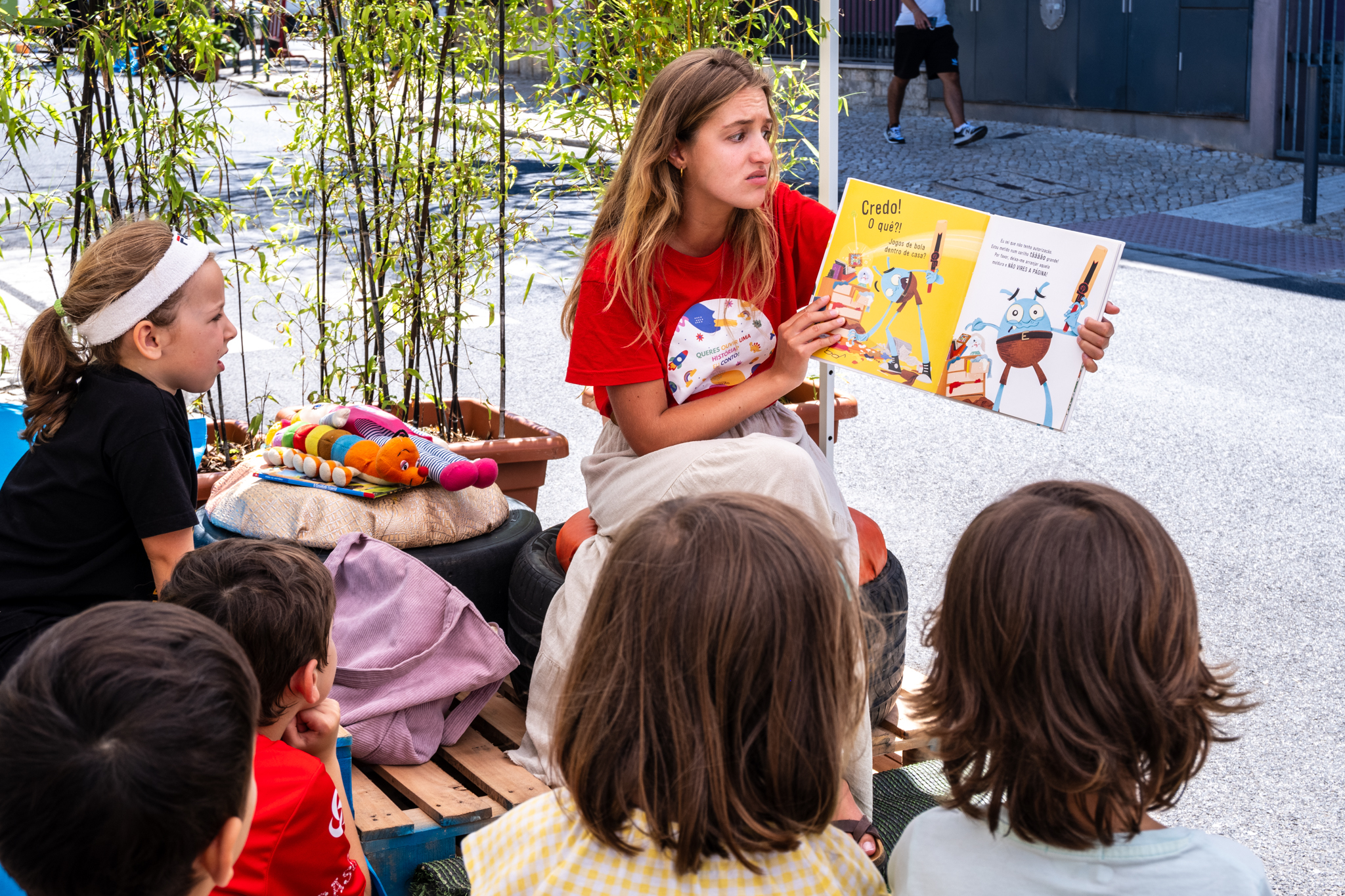
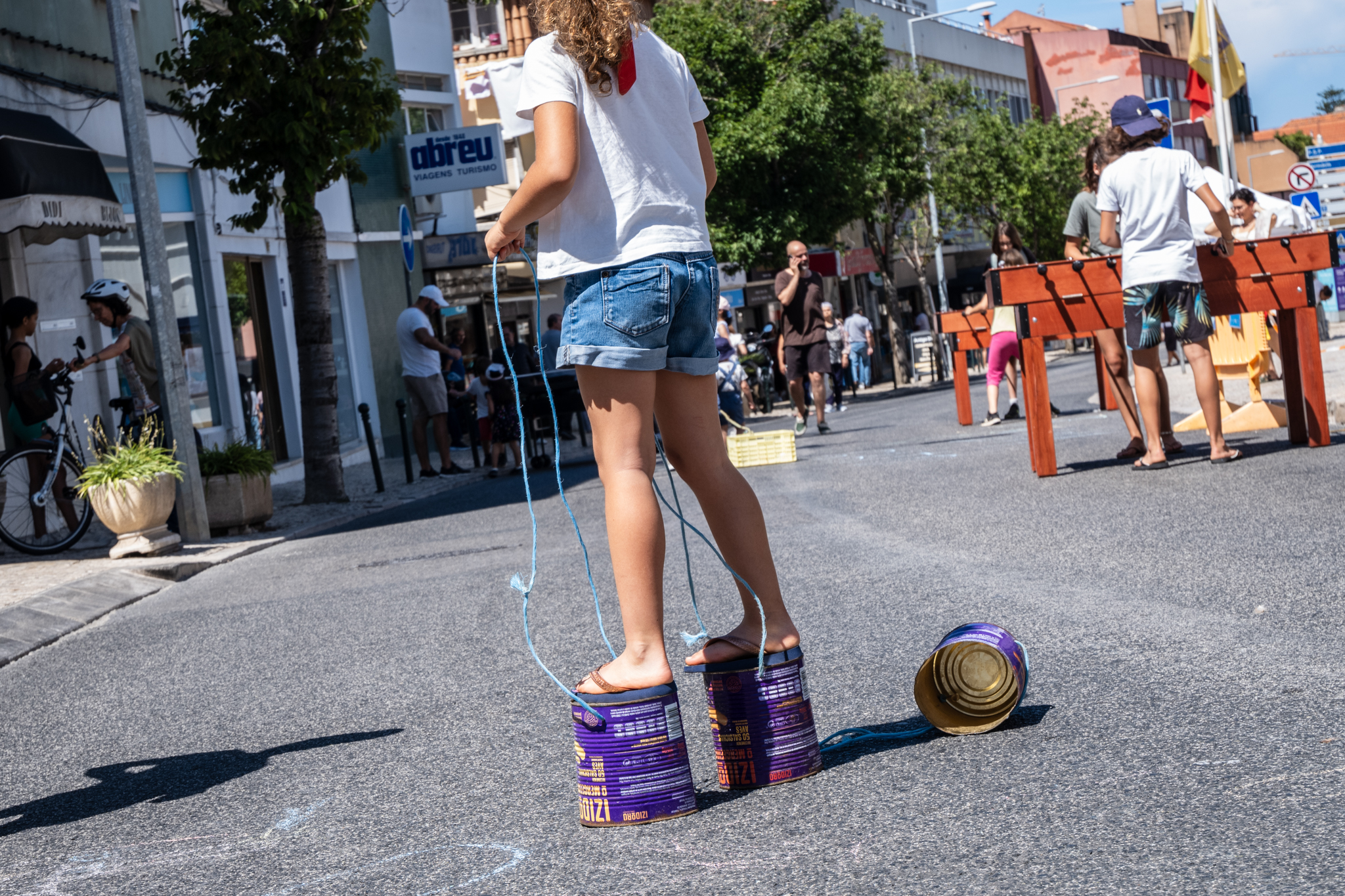
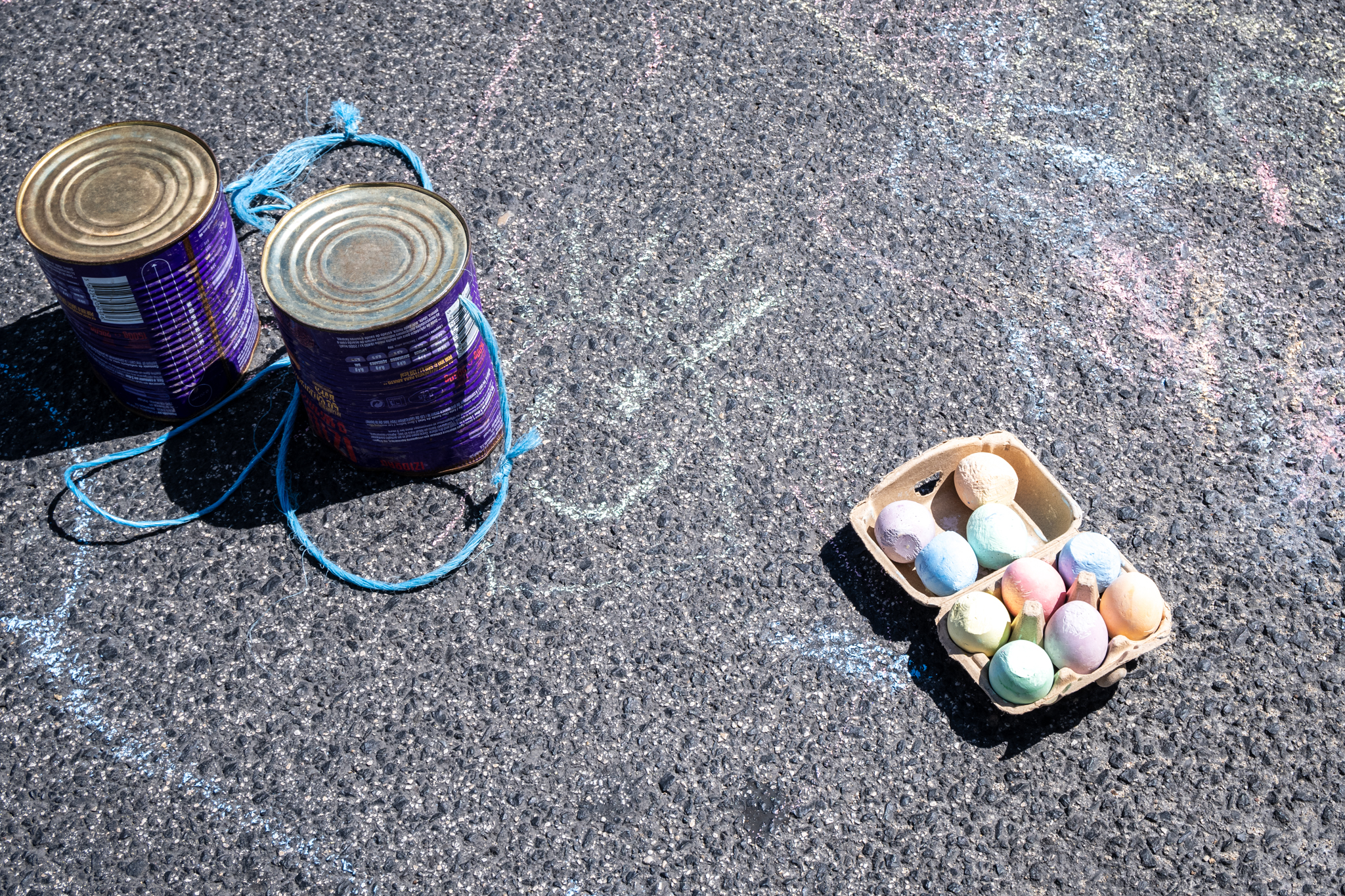
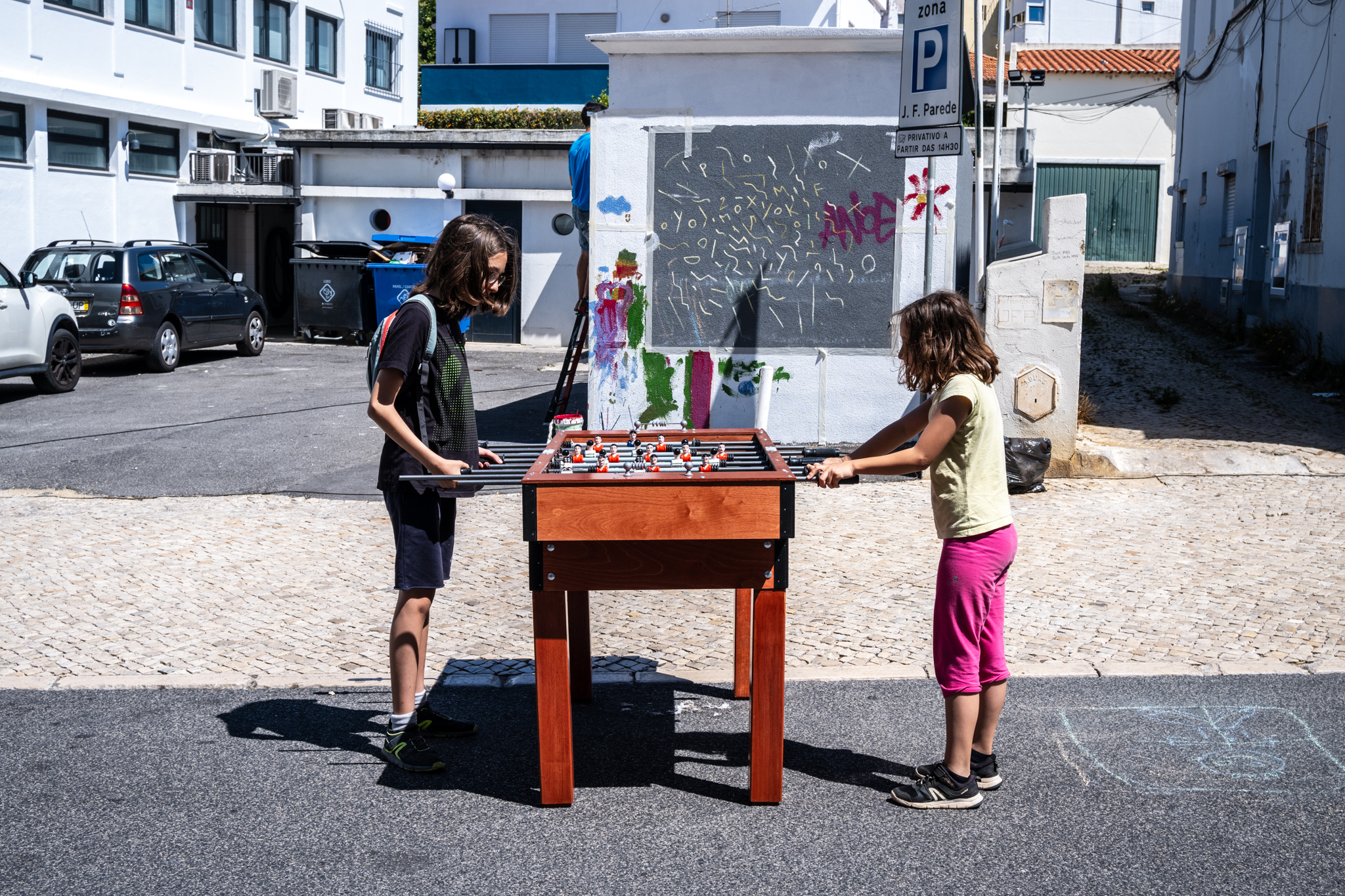
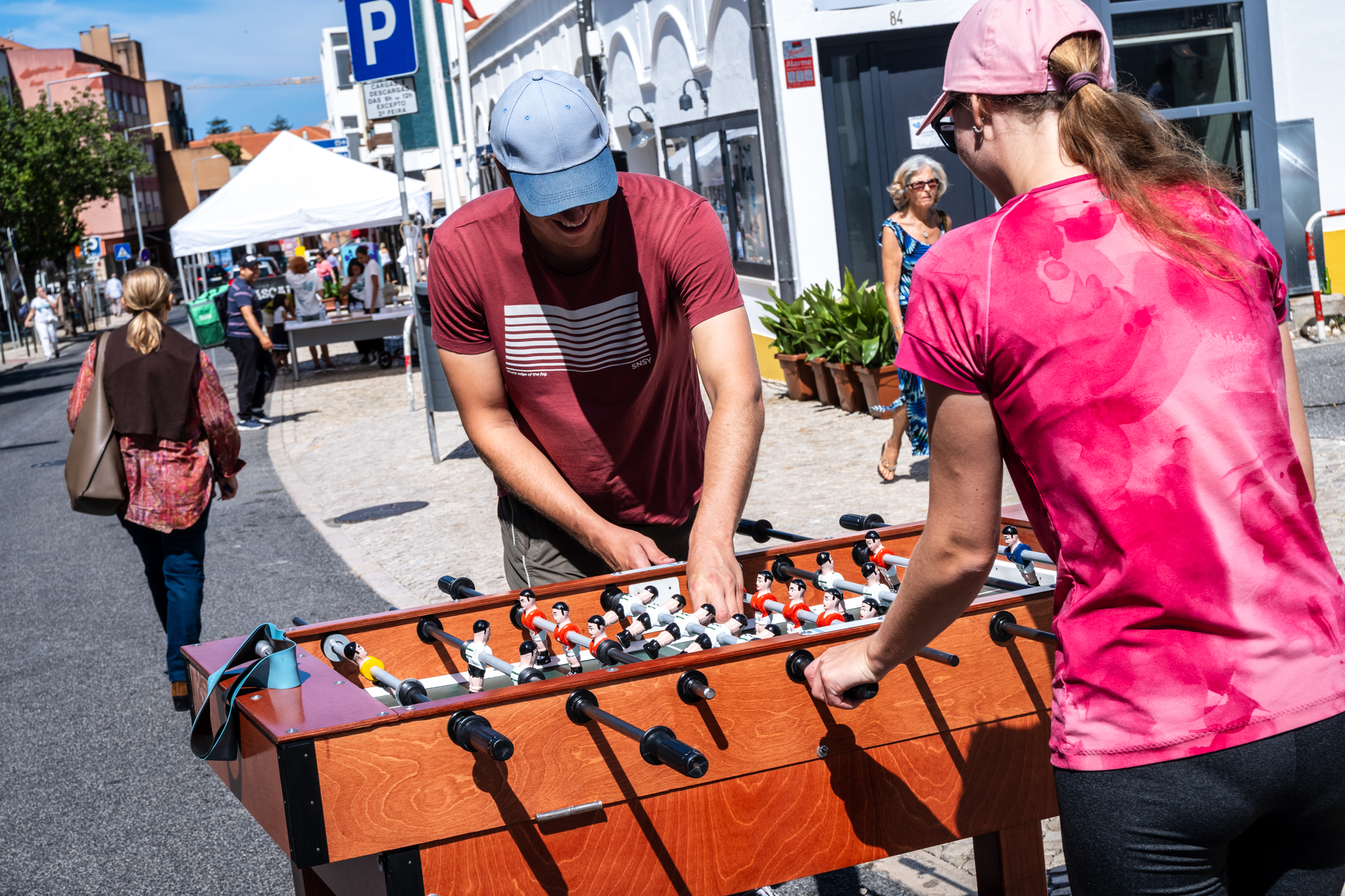
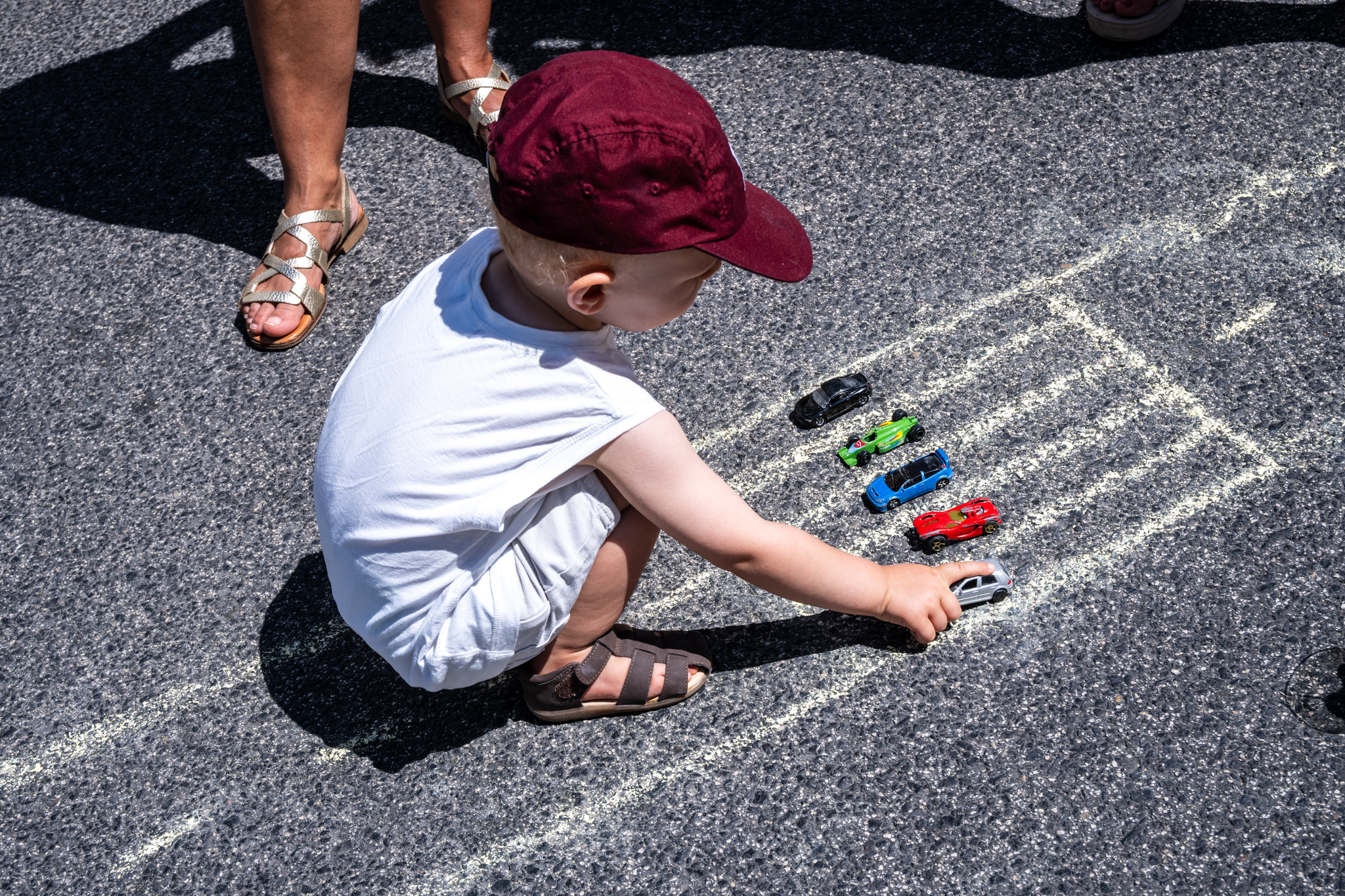
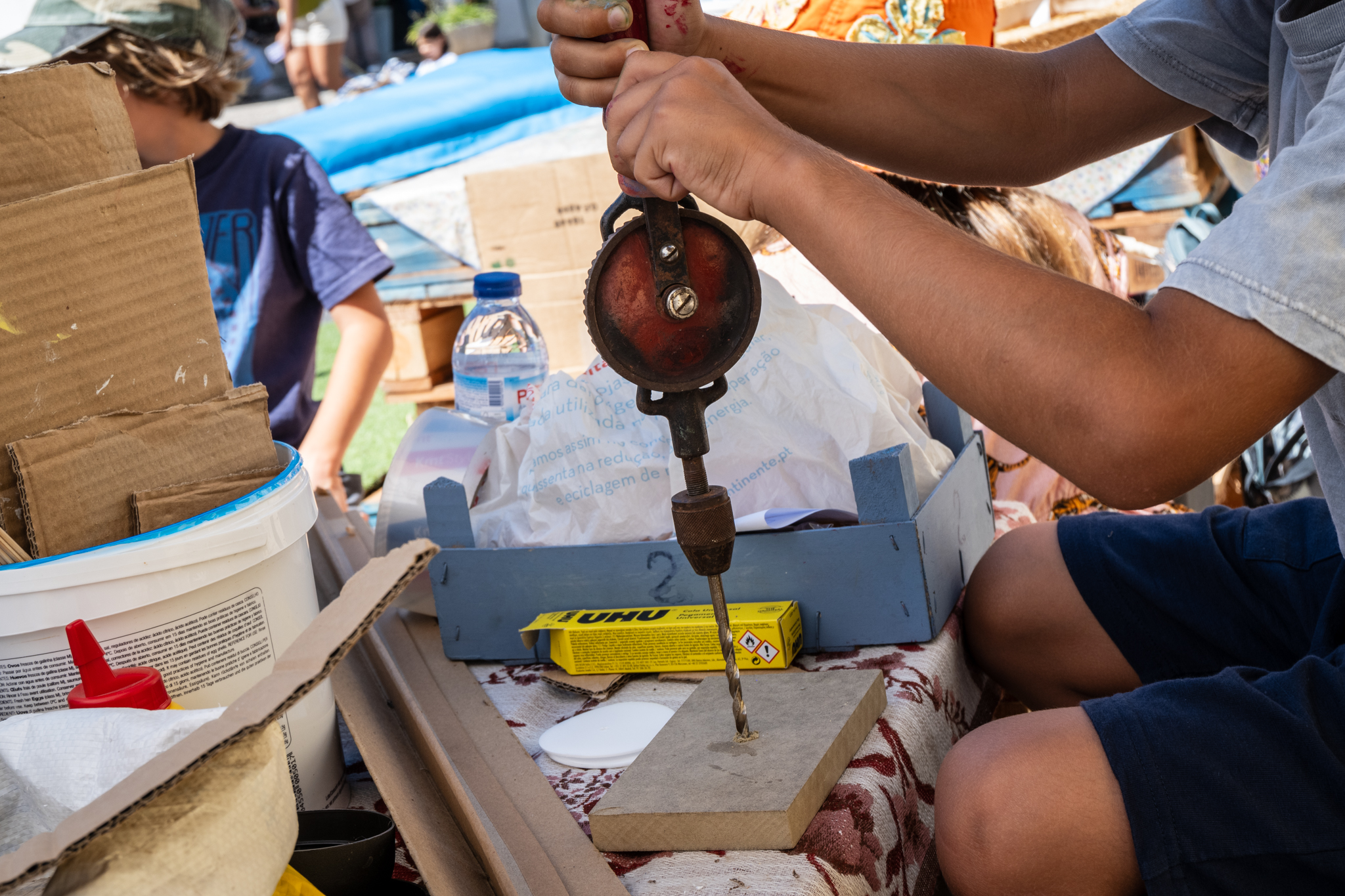
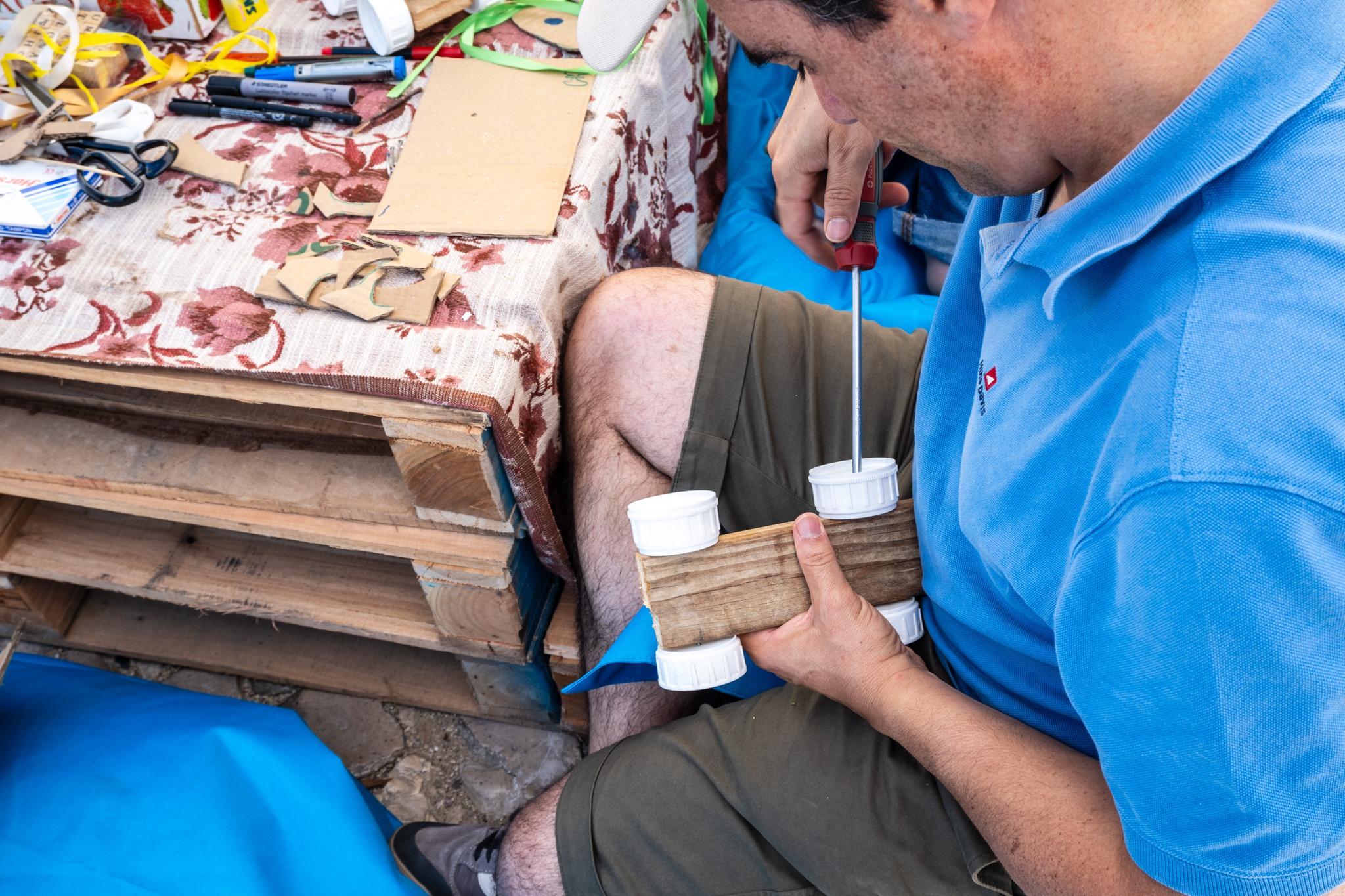
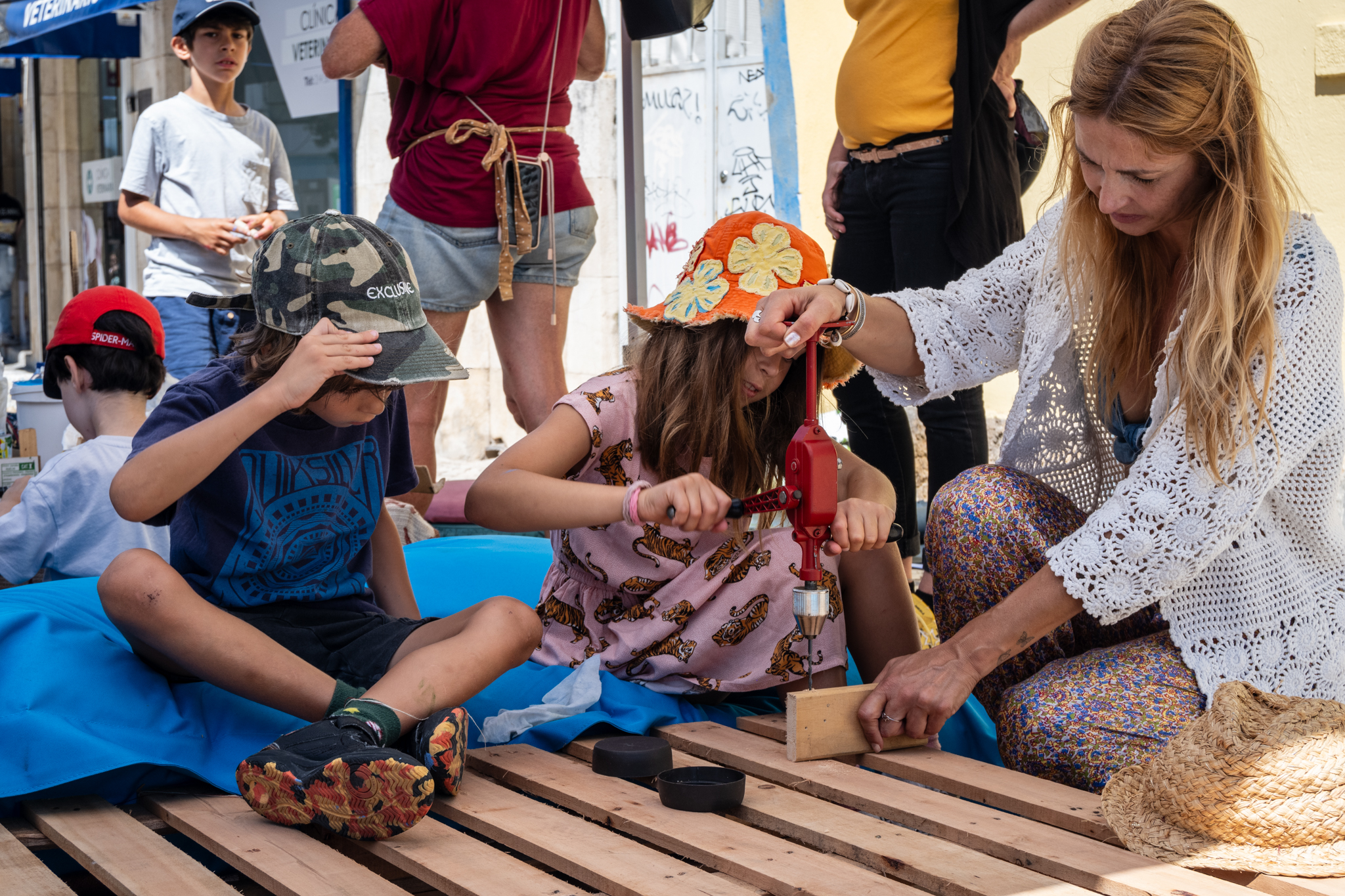
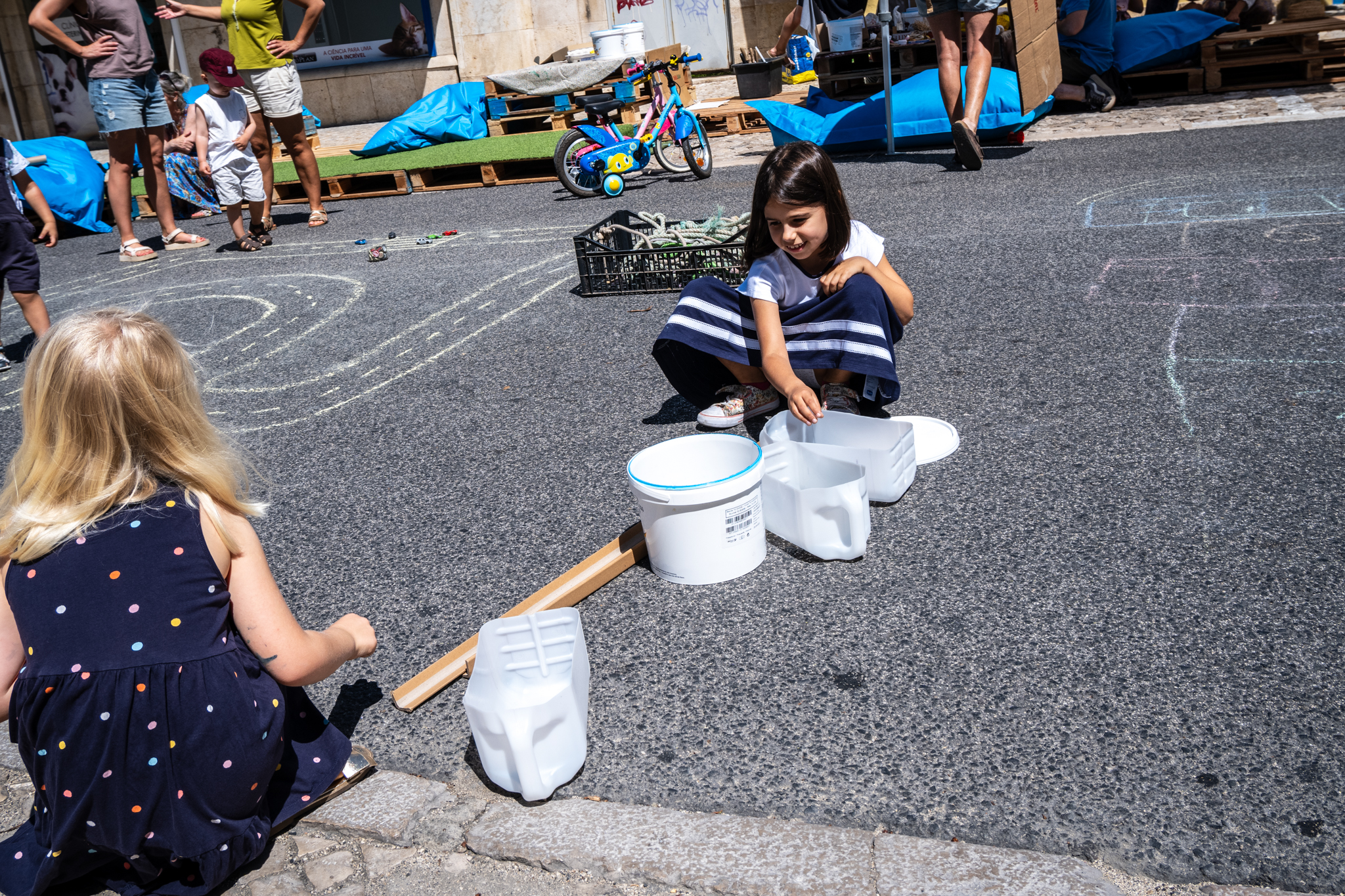
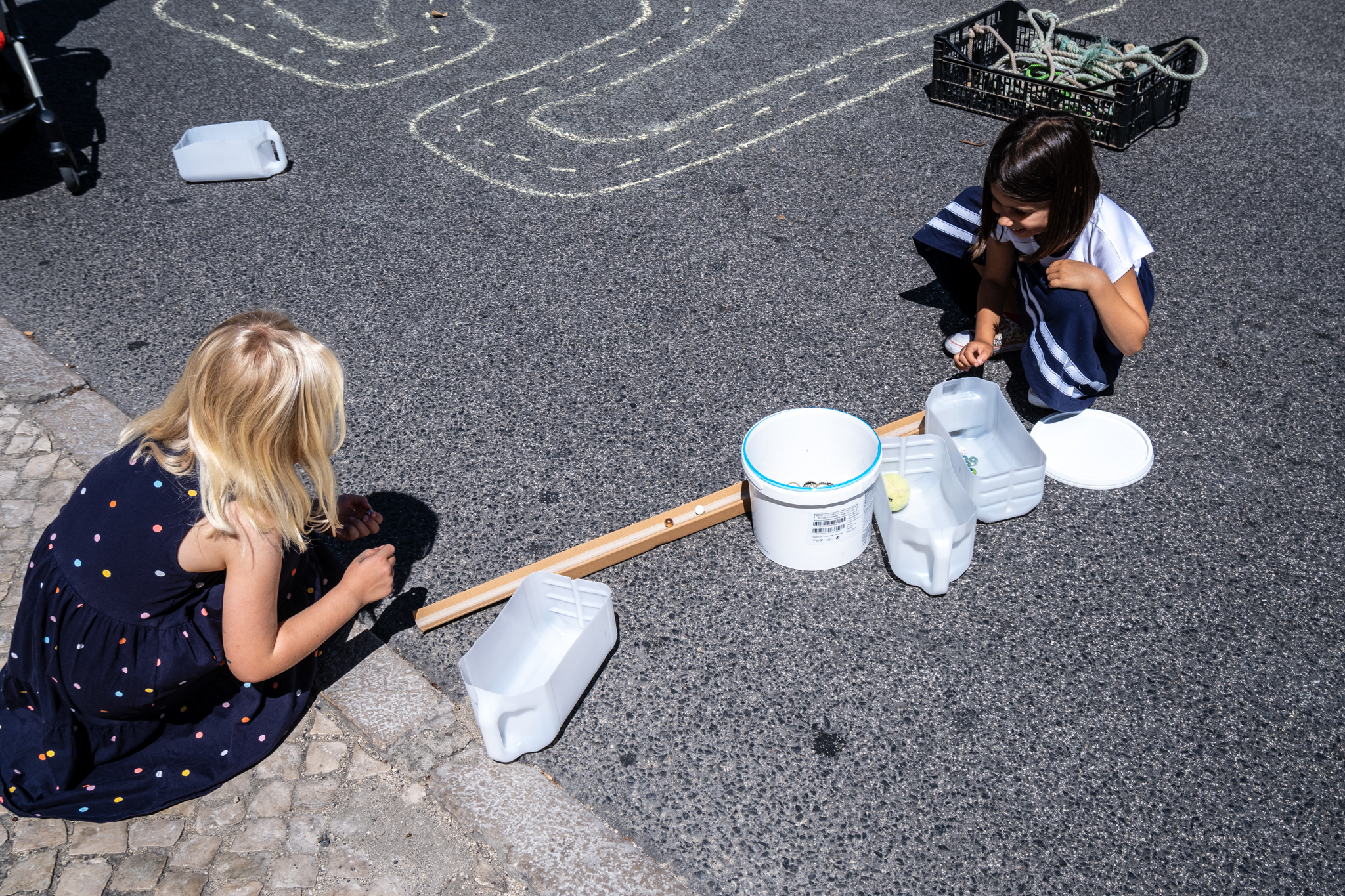
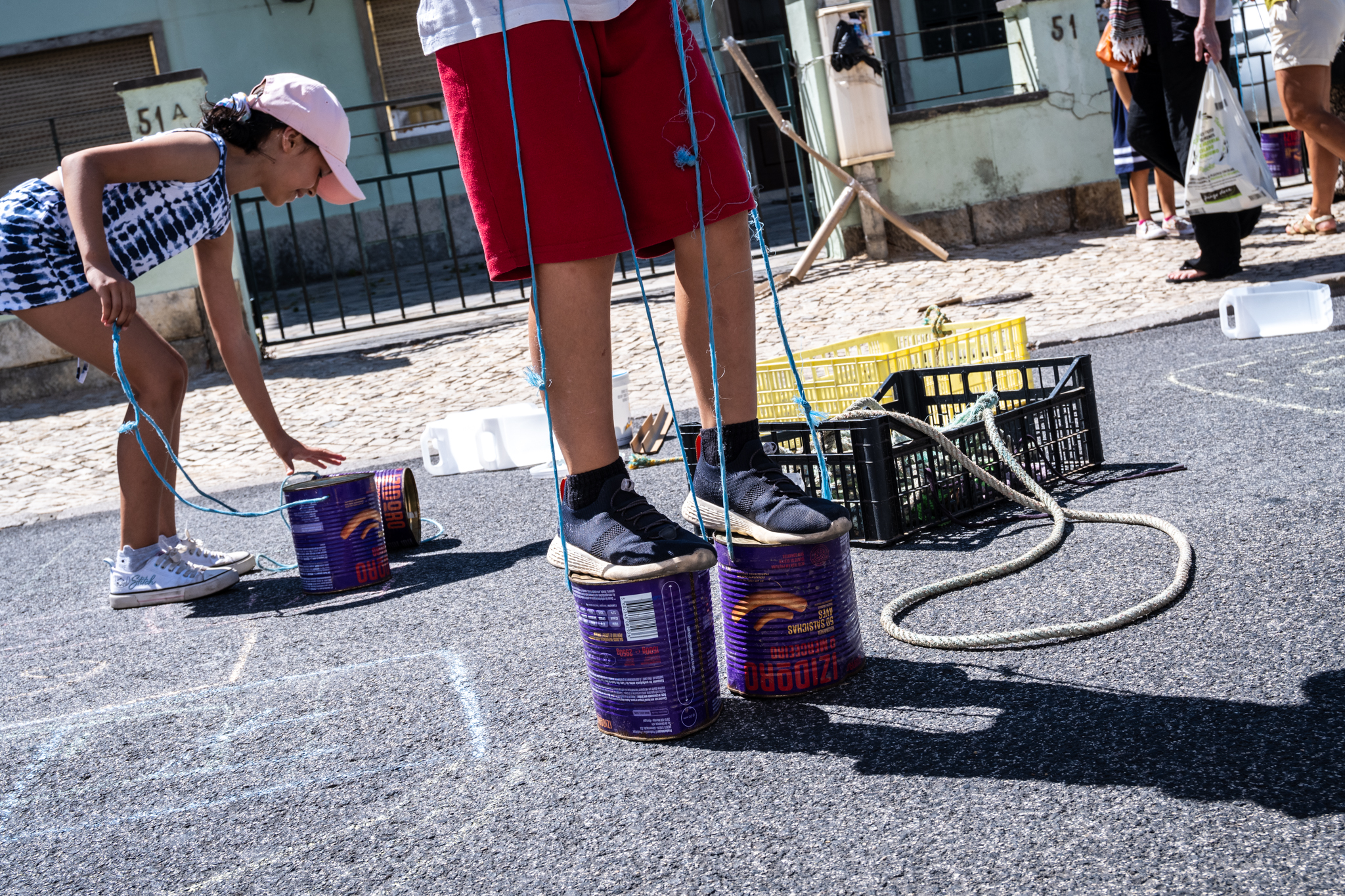
The activities were planned by the Municipality of Cascais together with the Parish Council of Carcavelos and Parede. The municipality usually has some partners such as APSI - Association for the Promotion of Child Safety, which has the project Brincapé together with the association 1,2,3 Macaquinho do Xinês.
A first experience of a street without cars but with children had already been made in April at Carcavelosmore precisely in Rua António Feio. Now it's time to do it again in Parede, a parish that is "united" to Carcavelos. A July 15ththe initiative is already scheduled for the parish of Alcabideche; later, between September and October, it will be the turn of the parish of São Domingos de Rana and also of the "united parishes" of Cascais and the Estoril.
In the good fashion of Cascais - it is a municipality that has shown a strong dynamic of public participation - the next streets to be closed to cars are not yet defined; there will be ideas from the City Council and the parishes, but the population is also being called upon to speak its faith. Precisely for this reason, this Saturday, on José Relvas Street, children and adults were able to help choose the next streets to be closed by sticking a sticker on a map; the little ones were also challenged to say what they would like the streets they walk on to have or how else they would like them to be different.
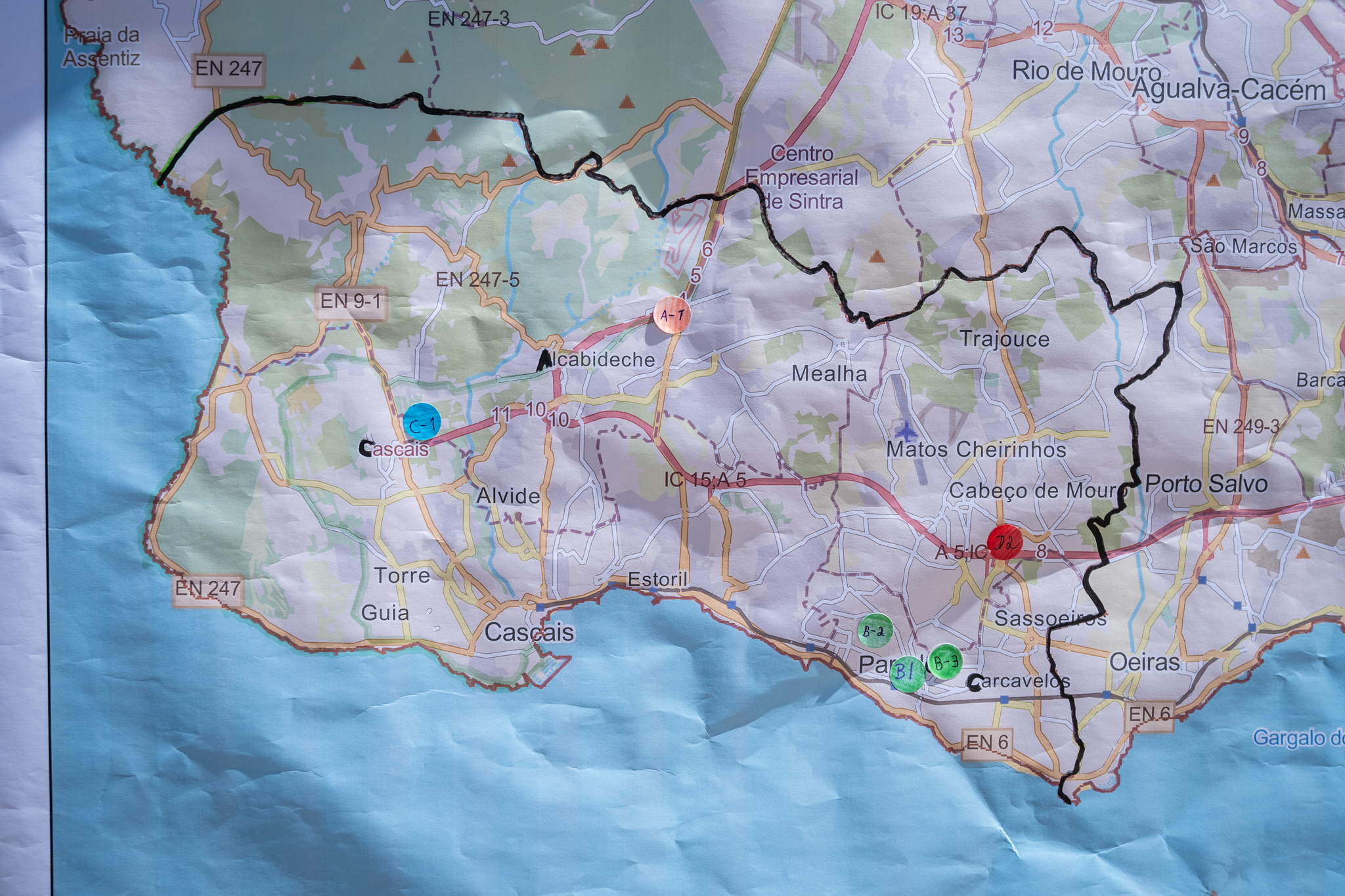
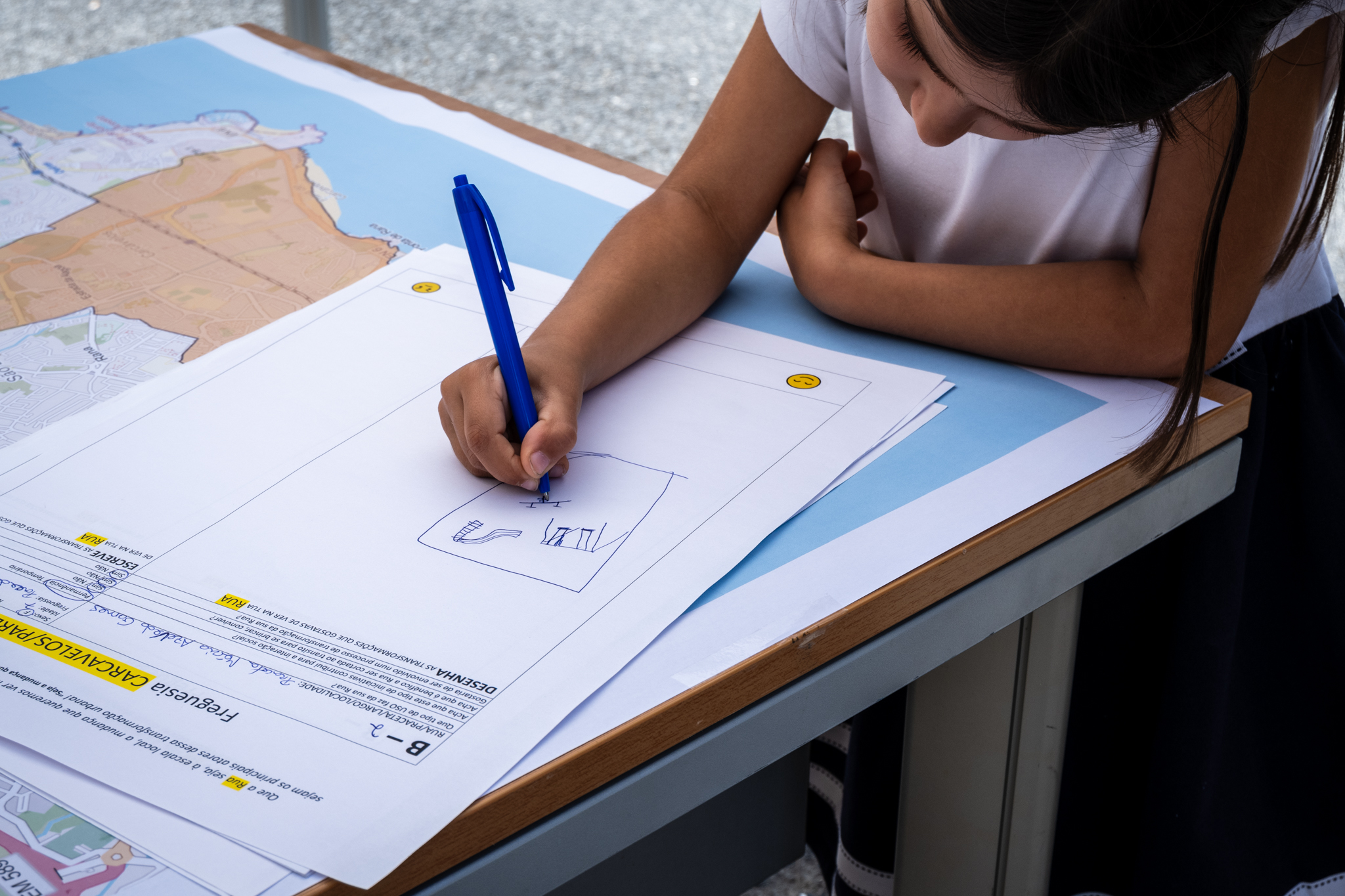
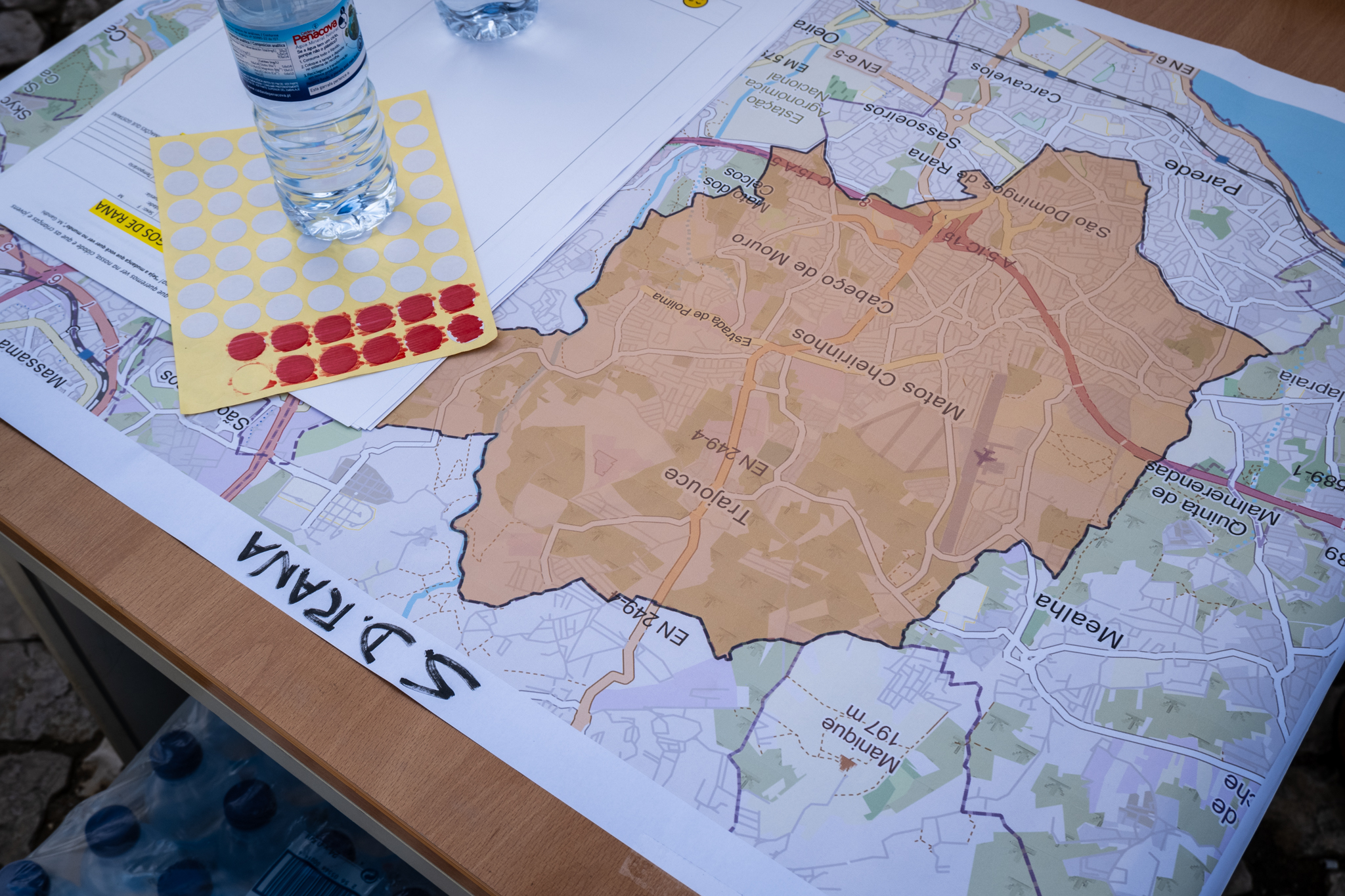
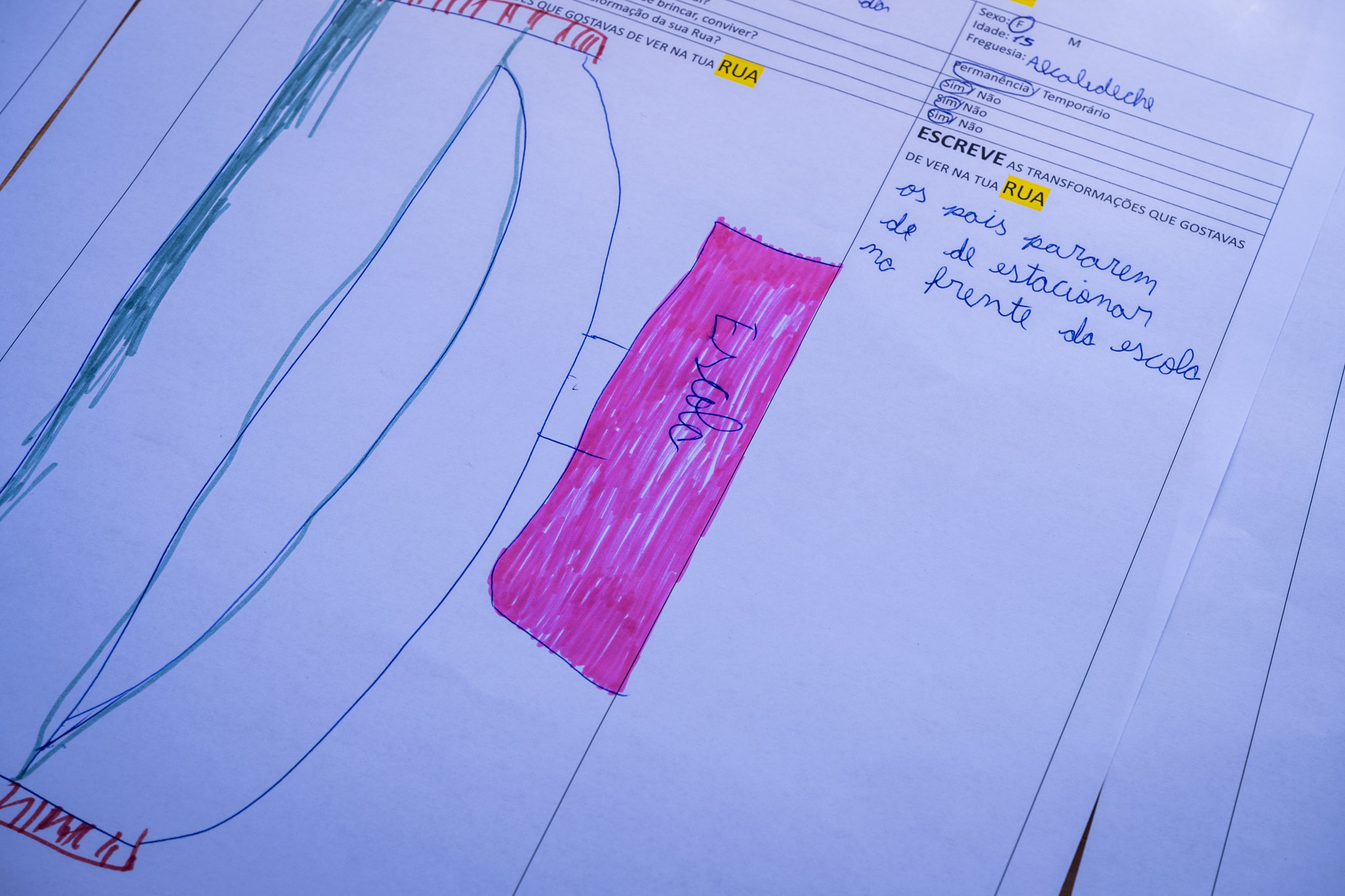
The painting of the mural itself is also a form of participation, in this case with an immediate effect, as it was accomplished on Saturday morning. The Municipality of Cascais says that in these initiatives it seeks co-creation with children, with the aim of involving the children in transforming the streets, which does not always have to involve painting murals. In Carcavelos, besides having a mural painted, the little ones were able to create new street furniture by fitting cork blocks together as if they were pieces of lego if they were. In a next action, co-creation could involve planting flowerbeds, for example.

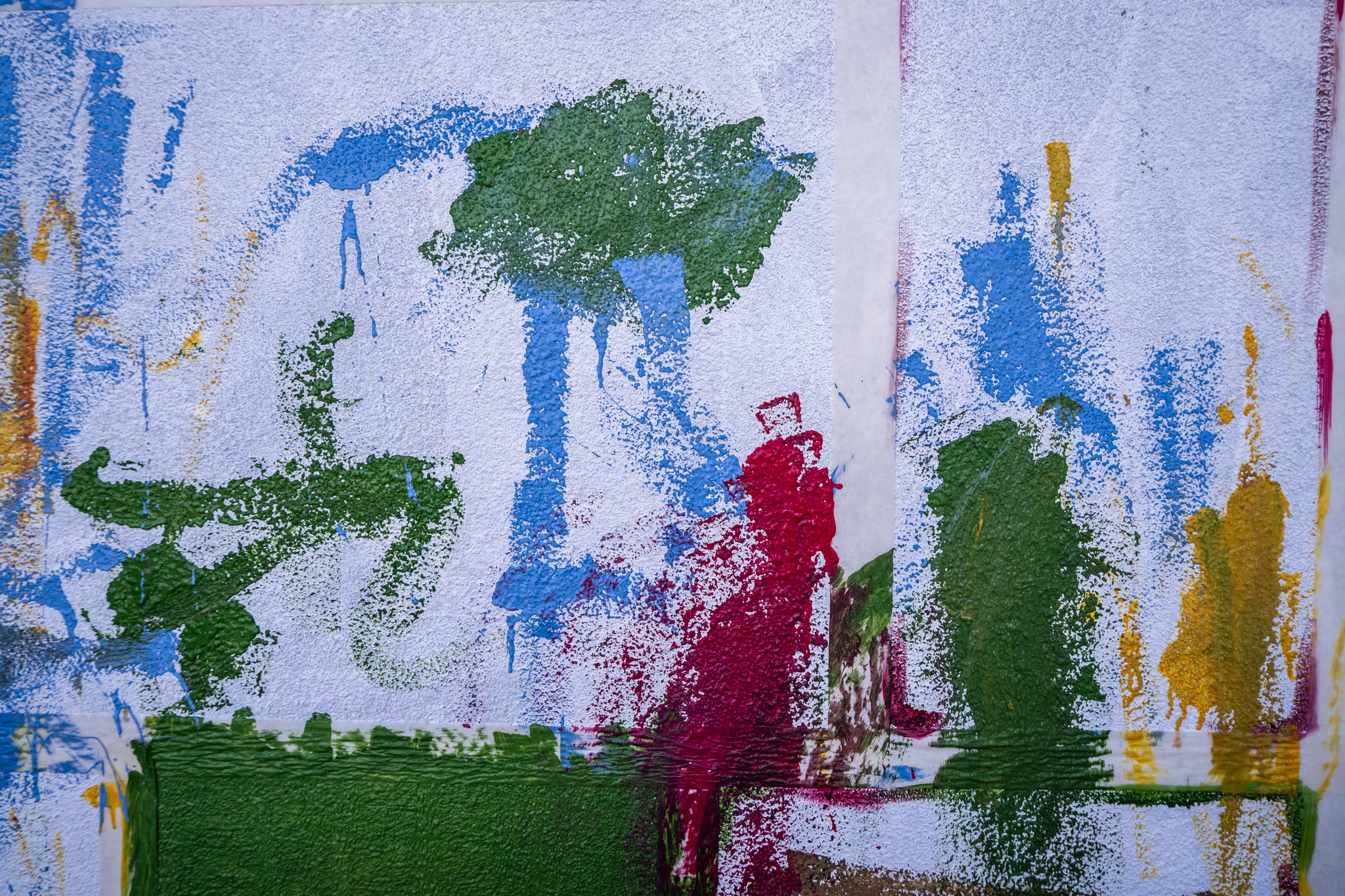
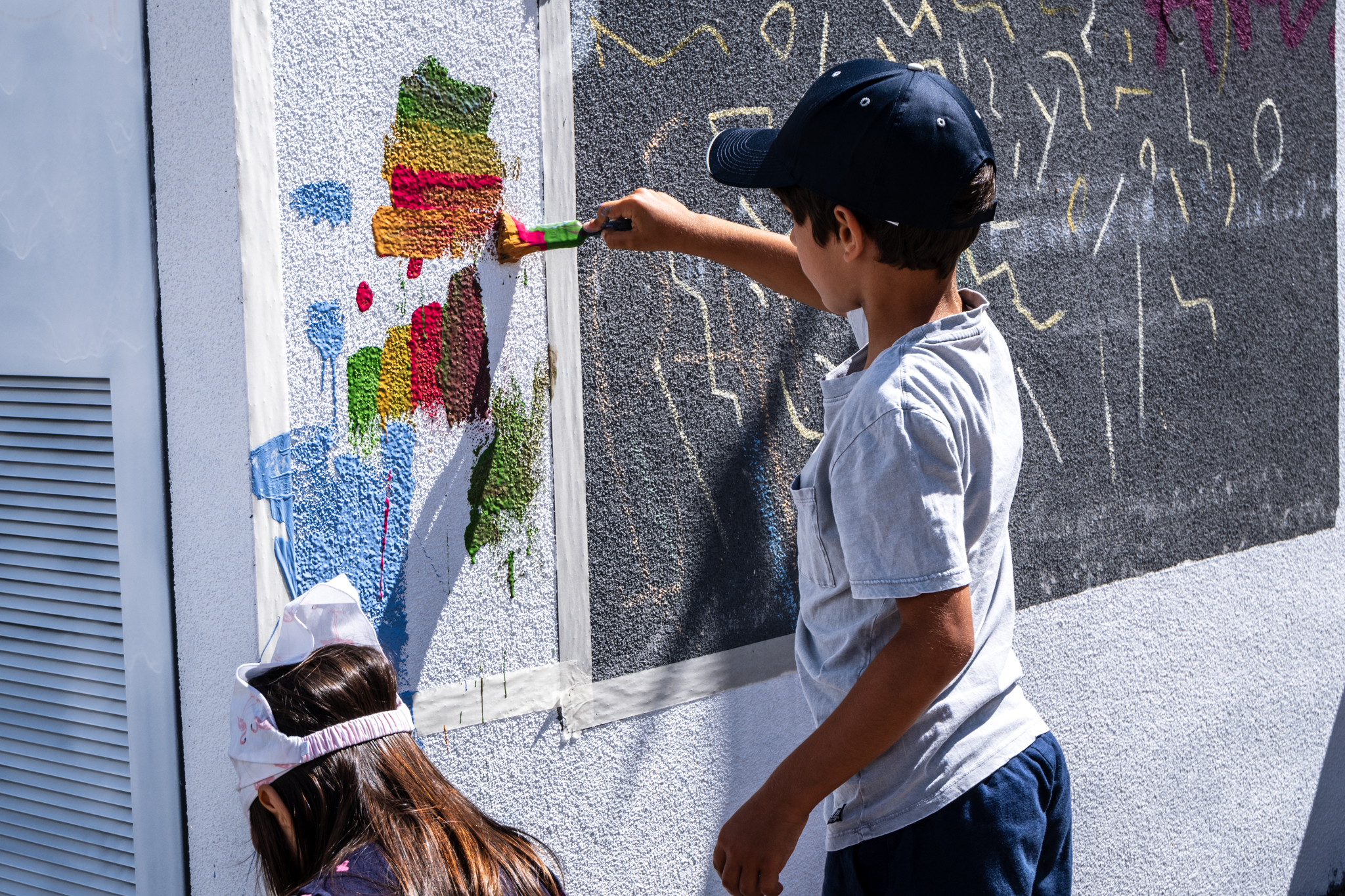
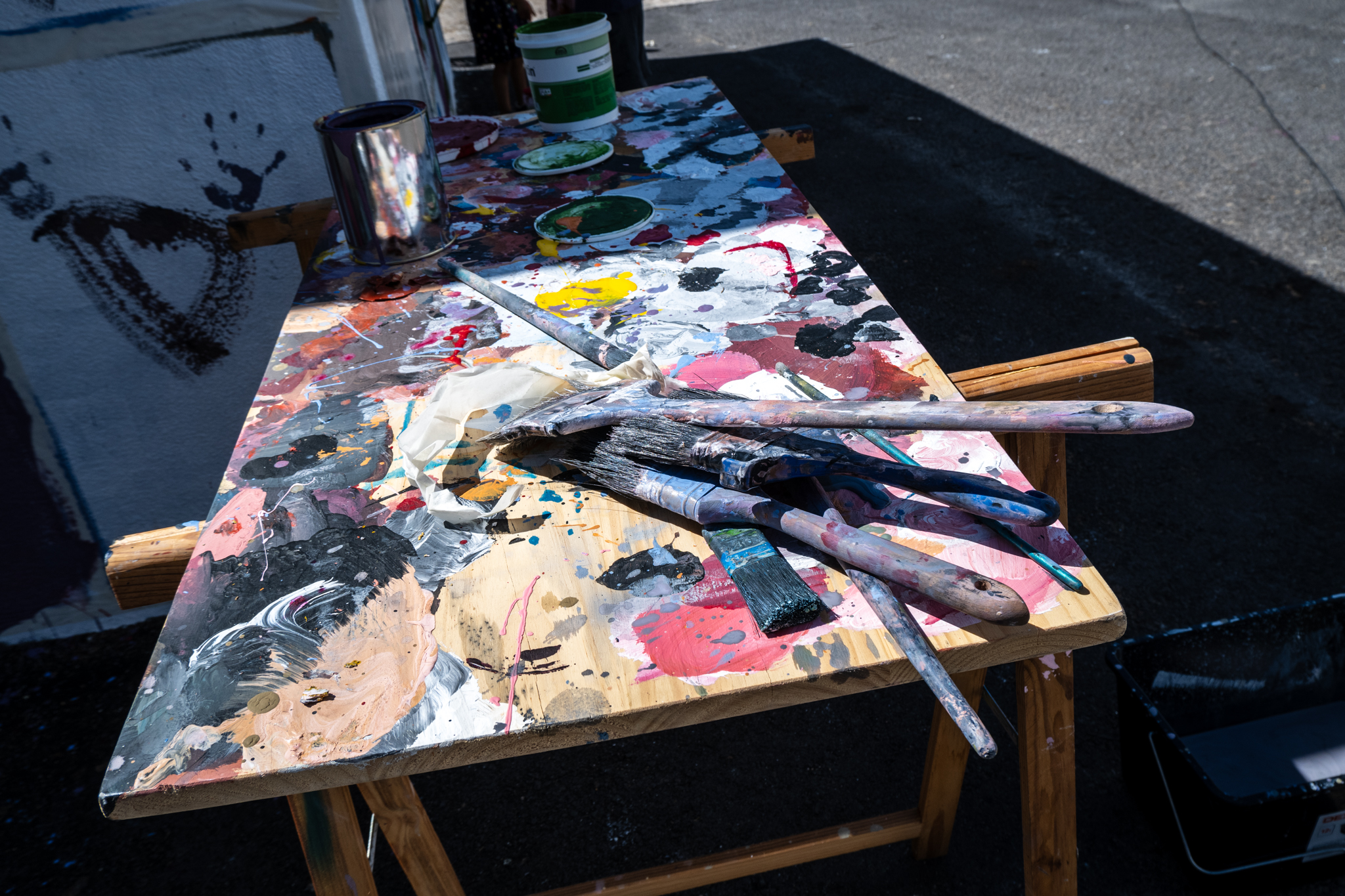
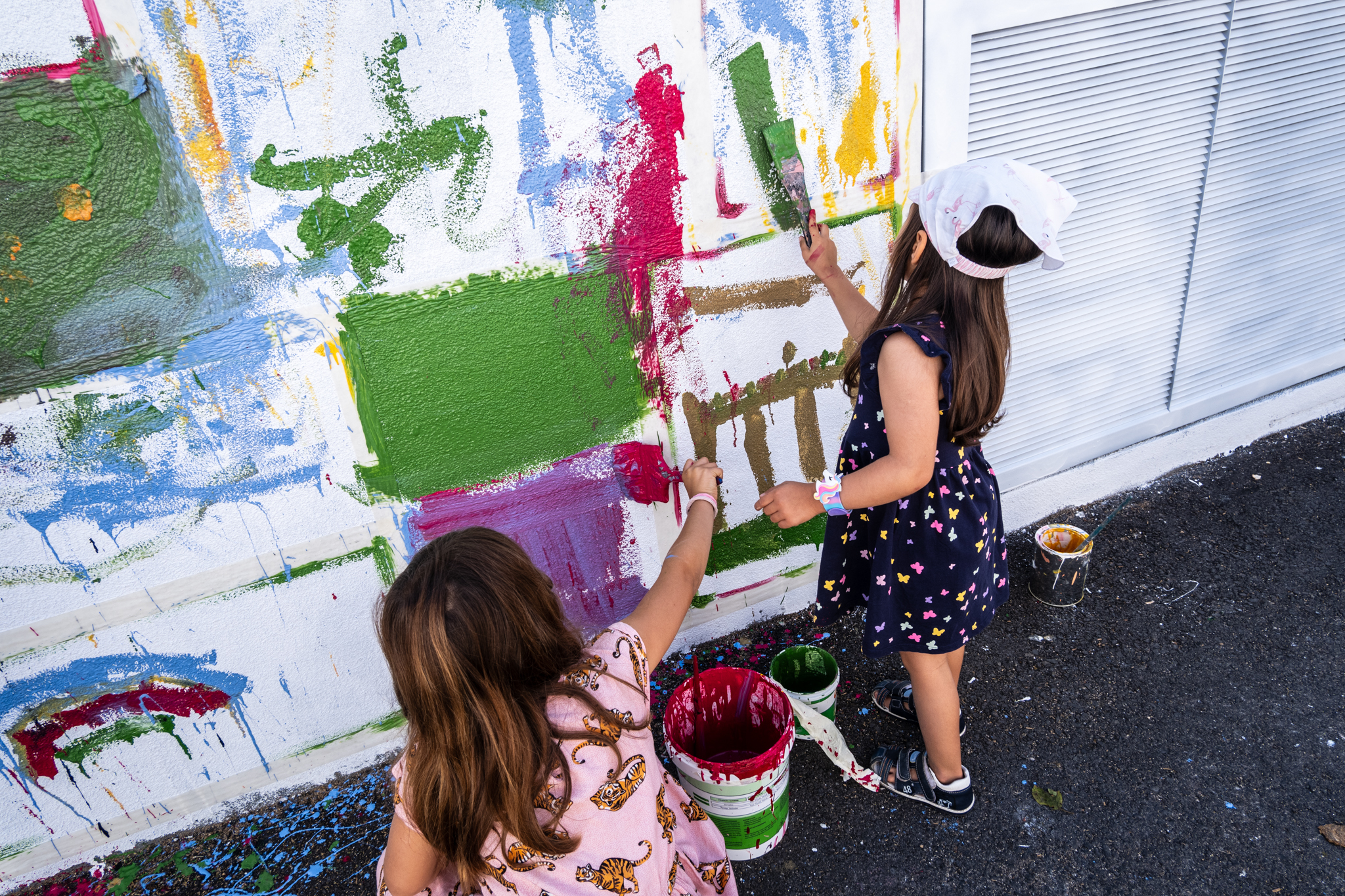
The Cascalense autarchy seeks that these initiatives - entitled The Street Is Ours -, more than spaces for play, are also thinking momentsIt allows families and generations to think about how they would like to experience their street and the various rights inherent in public space, making children and young people actors of transformation of spaces that are mostly destined to cars. One of the ideas that, for example, the Chamber wants to activate in this field, in one of the following parishes, is an "urban safari" - a kind of peddy-paper where children are taken for a walk around the block to, together with adults, make a survey of the problems and barriers they encounter in the public space, and to propose ideas for improvement.
Next The Street Is Ours will then be in the parish of Alcabideche on July 15; the street will be announced soon. For now, anyone interested in receiving more information about this project, which is the responsibility of the Unit for the Promotion of Rights in the Territory (UPDT) of the Municipality of Cascais, can send an e-mail to updt@cm-cascais.pt.
"Do you remember playing in the street? Generations of children hold the fondest memories when, after school, they would gather with their group of friends and play in the street to monkey, to scarf, to catch, to hide and seek, until their parents called them to go to dinner. At that time, and it wasn't that long ago, the only screen that existed was the TV, with only one or two channels, and few were the children's programs that rivaled the adventures in the street. Today the reality for children is quite different. They no longer play in the streets, they don't walk to school, many don't even know where they live. Everything happens inside the screens and inside the cars, from home to school. The street is considered a dangerous place for youngsters. Is that healthy?"
- Cascais Chamber's description of the project
